|
"Your friend is an ignorant anti-Semite." The comment was from a stranger, a friend of a friend who had shared my last post, and though it upset me, it also got me thinking - what is anti-Semitism? Where is the line between a government and its people? And had I crossed that line? I entered this country of conflict already on the Palestinian side - was I responsible, then, for my interactions? An acquaintance wrote to me on the same post, expressing that he hoped I knew those two conversations did not represent the feelings all Israelis. I had trouble responding, baffled by the assumption that I could even harbor that thought. But when a stranger (who is Israeli) said the same thing to me, I responded that no, of course not, I would never presume that. I just became very afraid to talk to people after that because if they found out I was spending time in Palestine . . . so I had shut myself off from other people . . . Damn. Their hate had won, even if only for a few days. Two individuals. I did not have other experiences with Israeli men and women because I was afraid. For three days, I allowed two interactions to create fear of an entire group of people. It is right there in the word - xenophobia. Anti-Semitism. Fear. Hate. But this post is supposed to be about the last week of my trip. A wonderful week with Cherif in Barcelona, Berlin and Copenhagen. As I stood on the roof deck of our hotel in Barcelona, awaiting my beautiful boyfriend's arrival, I found myself nervous. Not about our relationship - the magic of Skype and Viber meant we had talked or texted almost daily, so I knew our relationship was solidly in tact. I was trepidatious because I had learned to function as a loner, solitarily roaming the world and fending for myself. Did I still know how to be part of a team? There were no worries. Cherif is an adventurer, too, and off we went into the city knowing only the direction of the sea. Barcelona was lovely and we were, I am equal parts and ashamed and proud to admit, two picturesque homos wandering that fantastic city. From fountain to street cafe to castle, Paella and tapas and cafe solo y cafe con leche. It is a glorious city with beautiful streets and beautiful people. We wandered throughout, climbed the mountain to Montjuic to view the city and stopped wherever we liked after our Gondola ride back down. We stumbled upon an entire street, closed off to traffic, filled with one-Euro tapas restaurants, overflowing with Spanish laughter and all vaguely underscored by the scent of marijuana. And we talked, a lot about my experiences and his time in Copenhagen, but at one point Cherif asked me stop talking about Palestine. "I can't," he explained, "Just for a little bit. It makes me too sad." And we boarded our flight to Berlin. Staying there in another gay hotel, I must say I was again relieved to be able to be a free-roaming homosexual. Berlin, believe it or not, is even more gay than Barcelona. Again we walked for miles, knowing only our general direction and seeing whatever came across our path. Berlin is a terribly modern city, with most of its more classic architecture having been destroyed in the second World War. In addition to the myriad of gay sexual options, there are many monuments and museums, testifying to Berlin's rich and complicated history. Almost accidentally, I found myself in an outdoor memorial to the Gypsies killed in the camps, weeping uncontrollably. Did I feel some ancestral connection to these people? Or was it just their wandering souls, slaughtered for their lifestyle in a time when millions of others were also killed for no reason? I'll never know, but I wept for these nameless undocumented victims, lost without note in a time when so very many were also lost. And off to Copenhagen . . . The Danes are beautiful people, and Copenhagen is a clean and lovely city. Thousands of bikers line the streets, zipping along with the assurance of their free education and health care, happily gay-married and often riding with a beer in one hand and a phone in the other. But I was not there, really, to see Copenhagen. Or at least not the sites. I was there to see where the man I love spends his days. We visited his home, his library, his favorite coffee shop . . . met his friends and his roommate . . . I was there to see his life. Home, now, it is so nice when he calls to be able to picture him where he sits.
On our last night together, we had a little couple spat. It was a stupid and short-lived argument that I started, and I will not bore you with the details of my idiocy. For it came down to one simple thing: I was afraid he might love me less than I love him. Is that not, always, what it is really about? Fear. It is a powerful force. Many people have told me they think me brave for taking this journey, which I find embarrassing and untrue. But fear of the unknown, fear of getting lost, fear of strange different people who eat different food and speak different words - these are seemingly monumentous obstacles that serve to keep us in place, ignorant and still and unconnected. Fear had kept me from learning and speaking in Tel Aviv. Fear of loving had caused me to create distance between myself and the man I love on our last night together. Though the distance between he and I was temporary and we came back to each other in the same night, the other chasms of fear are still quite wide. "The conflict will never end." I was told by Israelis and Palestinians alike, and it may be true. For both sides are terrified of the other. And everybody, on any side of any conflict personal or international, is afraid to lose. When did we become this world? Where to love more than the other is to lose, and to hate more is to win? Five weeks and six countries. French, Arabic, Spanish, German, Hebrew, Danish, English, customs and families and art and love and homes and monuments and fences . . . and everyone, myself included, wants to know what it all meant. And I have no idea. Except that I am, hopefully, a little less afraid to love. - - Adam
3 Comments
"Did you know that Arab women, not all of them, but a lot of them, MOST of them . . . Arab women only have children because they hope the child will be a male so she can strap a bomb to him and send him into Israel to kill us. That's why they have babies." My plane from Barcelona to Tel Aviv had not even begun to taxi, and my row-mates, a young Israeli man and his girlfriend, found out I was an American and came straight at me with questions regarding my thoughts on the "Israeli-Palestine problem". I had prepped myself well for customs, but I was not ready to be interrogated on the plane. As a lover of languages, I was well aware that every person in at least five rows in both directions was speaking only Hebrew, so I was more than hesitant to enter this debate. I laughed nervously, then claimed I did not know enough to answer intelligently. When his verbal essay on Palestine did not seem to sway me in the way he had hoped, he came out with the above gem of knowledge. In my head, I was thinking that I know several Arab mothers and exactly zero of them want their children, male or female, to die in a bomb explosion but instead I looked him in the eyes and said, "Wow." I let him believe my awe was at his statement, when in truth I was overwhelmed by his despicable racism. That seemed to satisfy him and we moved on to American television and life in Israel. Customs, though intense, was relatively easy. My five-day trip in Israel as a tourist seemed perfectly reasonable, so through I went and out to the curb. The airline had claimed to have found my bag, but at five AM I thought it better to find my apartment and deal with the bag later (it was finally delivered that evening), and I hopped in a cab. "The population of Jerusalem is around 1.3 million people," my cabbie explained as we discussed Tel Aviv versus Jerusalem, "unless you count Arabs as people. Then it's 1.5 million." His phone rang and he answered it, covering the silence of my horror. Welcome to Tel Aviv I spent the afternoon at the Tel Aviv Museum of Art, which saved me from my own disgust and fear. The artists can always remind and inform me, and seeing works exploring terror, war and cultural identity in a nation besieged by hatred and resentment and persecution helped my to put my first two interactions in context. But still I was thrown. I had not encountered racism and hatred like that in such a casual manner . . . ever. My naiveté was shattered, and my hopes that this country would, too, change my pre-determined notions of rampant xenophobia was sifting away in the actuality of these neighboring and warring peoples. On the beaches of Tel Aviv that evening, I was furious at the tourists sipping martinis and giggling (Tel Aviv at night by the beach reminds of a beach town anywhere in the world, dotted with looming hotel chains and cafes while half-dressed men play volleyball and couples stroll hand-in-hand on the boardwalk), but I realized I had no right to be angry. When I pop into Starbucks on Ninth Ave chatting on my iPhone, I ignore the conflicts of the world and live my life. Proximity does not excuse apathy or create activism - everyone just wants to be happy, and for most of us that means pretending the world stops at our periphery. Distance from the problem does not give us absolution. It was time to go to Palestine. Armed with assurances from my lovely host Eli (a wonderful Israeli-Persian man who quizzed me each morning on my travel plans to make sure I had them correct, and joked that he would keep my stuff if I didn't make it back one night), I hopped the bus to Afula where I was to meet a car that would take me across the checkpoints and to the Jenin refugee camp. Loaded with Israeli soldiers, children armed with M-16's (okay, I don't actually know anything about guns, so I think they were M-16's...) doing their required military service - off we went. After a little confusion, I found the driver and we headed in, across the boarder (where he was questioned and I was waived through with a glance at the United States emblem on my passport) and into the Jenin refugee camp. Everything you have been told about the Palestine people is a lie. Every image forced upon us by the media and the Israeli propaganda machine - dusty angry Arab men holding make-shift weapons and spending their days plotting the fall of Israel - is complete and utter crap. These men may exist, but when I entered the West Bank, this is what happened to me: The people at the Freedom Theatre had arranged for my transport both in and out of the camp. They met me at the theatre with a warm and beautiful greeting and introduced me to everyone around. They then, of course, fed me - a sesame broth stew that I can still taste, and coffee after (always). Nabil, the Artistic Director, showed up, greeted me like an old friend, and drove me to the rehearsal hall where I was introduced to the acting company and technical staff . . . and fed again. Di, the British director, greeted me and explained her hesitation at having me in rehearsal, so we worked out my cue to leave if it seemed my presence was distracting. It was truly incredible, in the midst of this place and under this oppression to see exactly what I would see in any rehearsal anywhere in the world. Artists struggling between the text, ego and their own lack of focus. A frustrated and loving director trying to pull it together in what never seems like enough time. Back stage shenanigans (including a fall and a trip to the hospital) and repeated stops and starts and, eventually, two scenes came together. "Well I think we might almost be telling a story." said Di with a smile. After rehearsal, a quick company meeting to discuss tech and schedules, and the company was dismissed. I do not know what I expected to find, but it wasn't this. It wasn't just people trying to make a decent piece of theatre. Theatre is my church, and I had stumbled upon the temple in a refugee camp in Palestine. The rituals of the mass were the same. After rehearsal we went to coffee and then to Nabil's house for more food. Beers arrived and pasta was served and art and theatre and sex and life were discussed and a TV was moved around to get better reception for a futbol match. At one point, Micaela (the movement director and Nabil's wife, an incredibly talented and insanely intelligent artist) brought up Israel, and Nabil and his friend groaned at her seriousness, "PLEASE can we not? We are having a nice time and enjoying each other. Let's not talk politics!" Politics. Politics?! I had observed a state of life that brought up images of Nazi Germany - check points and abuse, police state and random arrests and jailing, harassment and racism and a rhetoric filled with words like "sub-human" that was so used it was commonplace talk in public transportation - and they called this politics?! At last my mind had been changed. I had come in with images of resistance and armed with conversational nuggets about the occupation, but what I found was human beings. Intelligent, gentle human beings frustrated with the ins and outs of daily life and who took me into their homes and work with a love and hospitality that I had only encountered in Arab nations. I wanted to talk about the injustice - they wanted to have me over for dinner and get to know me. I was floored. Welcome to Palestine The next morning, after staying in an apartment with two yoga teachers and a filmmaker (three incredible women in Jenin trying to make a difference) I went to the theatre to say goodbye. Jonatan, my original contact and host, had again arranged for me to get out, this time with a driver who would take me all the way to Tel Aviv. And we were off, with promises to stay in touch and a hope to work together in the future. We drove out a different way, through the mountains of Palestine and in and out of towns and cities. I was so sad to leave and wished I had arranged to stay another night. At the checkpoint, the driver was harassed but I was waived through - yet again a white face, an American passport and a smile can get you whatever you need. I wanted to scream at this girl with her gun and her smug look and her racism and her fear, but what good would it have done? My passport may let me in and out, but it cannot save anyone else from the injustice it represents. Or can it? This is where I am supposed to say she was just doing her job. Back in Tel Aviv, I sat on the beach and watched the sun set with rest of the privileged world. The next day I headed to Jerusalem, but I must admit, at this point, I was mainly going to gather evidence of my tourism. I wanted to go back to Palestine. I met an American girl who overheard me asking for directions in English, and we toured the Tower of David museum. I relaxed, settling in to learn. The museum, a restored fortress, gives a terrific (and surprisingly objective) history of the land inclusive of all religions. I was especially moved by this piece of text: I said goodbye to my new friend and wandered into the Old City, planning to make my way through the Jewish Quarter and into the Muslim Quarter, eventually winding over to see the tunnels under the Western Wall. It was a market, not unlike Marrakech, with hundreds of small shops and winding tunnels. At this point in my travels, I was quite adept at wandering these vendor stalls, noting that the tea pots and Muslim items had been replaced by Menorahs, Israeli flags and other Jewish items. I almost didn't take note of the large Israeli shopkeeper coming at me, assuming he was going to try to lure me into a purchase, until he got very close to me and snarled viciously into my ear at a volume clearly intended to be heard by others, "Go home FAGGOT! You are not welcome here." Welcome to Jerusalem I walked on, pretending I had not heard him, but suddenly the winding chasm of shops seemed like a cage. I moved at exactly the same pace, but inside I was in a panic to get out. Finally finding my way to the exterior walls of the Old City, I turned right, heading via the exterior to find the Muslims. I cannot explain why I needed to be around Arab people after a homophobic interaction - they are, too, a people and religion that does not accept who and what I am - but I knew I would find welcome there. Calmed a bit, I decided to skip the markets and walk, instead, to see the sites around the exterior, an awesome and inspiring conglomeration of the major world religions. I had purchased a ticket to explore the catacombs under the Wailing Wall (as with the Mosque in Morocco and my respect for that religion, I observed the religious site without participating in the ritual) and had more than an hour to kill before the tour began. I wandered back into the Medina, past a few small restaurants and shops, and found this place. When the young Middle Eastern boy working with his father offered me Shawarma, I almost hugged him. I relaxed in the music and food and hospitality, finally at peace a bit in this strange city of religious pilgrimage. Fed and with a little bit of calm, I wandered back to the Wall. Some security issue had arisen and the tour was cancelled. Not bothering to try for a refund, I decided it was time to go back to Tel Aviv, pack and leave this place.
Getting through Israeli customs is an adventure. The risk, apparently, is that you will be questioned and not allowed to return. I had re-prepped my computer and gathered proof of tourism. I had left my Arabic notes in at the hotel in Barcelona, so my only worry was if my time in the West Bank had been documented. But yet again, an American passport and a smile and I was whisked through, even being taken up the employee elevator when my bag needed to go another way. The young man swiping the wand through my carry-on apologized (three times) for having to throw away my yogurt (the symbolism is not lost), and waived me away with a bright smile and a "Please come back to Israel Mr. Fitzgerald! You are always welcome here!" As long as you are white. And American. And do not mention Arabs. Welcome to the world I would like to say that I cried on the plane. Or that I made a grand declaration of the injustice in the airport. Or that I even understood any of what had just happened. But the truth is just sadness. I was, and am, so saddened by the hatred and racism I had encountered. There is no religious war in occupied Palestine. There is a race war, and it is more vicious and complicated than I could have imagined. I do not understand it, but it has changed me. People from all over the world travel to the Holy Land to encounter God, in whatever form or by whatever name they address their own deity. I am not sure he is there. - - Adam Forgive me readers for I have sinned. It has been quite some time since my last confession... I am currently in Tel Aviv, but I will need to land in another country before I am able to process the flurry of emotions and experience I have had here. Luckily, I haven't written a post in quite some time and am several cities and some lost luggage behind, so I have a wonderfully valid excuse to delay. My last few days in Marrakech were a flurry of activity. Classes continued every morning, and I began to make some traction, occasionally even having an uninterrupted (if slowly paced) basic conversation. The last day was a bit frustrating as Hayat tried to cram in another week into a single day, but overall I am very happy I took the class and hope to continue my studies back in NYC. One evening during my final week I ventured up to Yahya's apartment to join him and a few guests. It was a small gathering, consisting of me, Yahya, his newly-found (via Facebook) half brother (a French Muslim who works in a hotel in the French Alps) and his friend Kim (a Japan-born ethnically Chinese entrepreneur). We sat around discussing Marrakech, politics, language, music, money and the world. Kim was especially amusing: Kim: I hate it here. I hate this city and I hate these f&*$cking people!! Me: Really? Kim: Yup. This place sucks. Sorry Yahya. Me: Then why don't you leave? Why do you stay here? long pause, big smile Kim: To beat them. To win. Kim has 100 business ideas ranging from a laundry service to a night club, and once she heard I worked in theatre she tried to convince me to move to Morocco, turning the club into a dinner theatre. Yahya and I broke away into a private conversation about travel and nomadism (while Kim verbally accosted his half-brother for an explanation of Islam), valiantly discussing our travels and future plans. We loftily elevated ourselves in the way that can only happen between two people who will go anywhere and try anything. We never discuss the creeping fear behind the joy, the feeling that in our Life Handbook the index contained a chapter titled "How to Settle Down and Find Satisfaction" but the pages of that chapter seemed always to be missing. It is not that we want such a life now, but rather that there is, unspoken, a fear that it will never arrive. The next afternoon I ventured to the amazingly beautiful (and unfinished) Theatre Royal de Marrakech (exterior pictured above). It is a stunning building containing an immense entry, administrative space, giant meeting halls, an opera house (to be completed in the next two years) a semi-outdoor amphitheatrical performance space. I was given a tour by the incredibly gracious facilities manager. I want to work here someday. That evening I met Khalid (the man who runs the school) and his friend for coffee. Joe is a PHD student in Anthropology who is in Marrakech (from the UK) to complete research on his dissertation. His focus is the underground society of illegal tour guides (and other non-sanctioned workers) and he is very passionate about the government mistreatment of a group of people forced into poverty by the very system that now abuses them for their attempts to earn a living. Joe and I strolled home together, and I asked him how he achieves cultural objectivity in order to truthfully examine (and subsequently write about) his subjects. His research (and his passion) re-raised, for me, the ethical scale question. After a long and fascinating discussion, he told me, "Well you can't, really, I suppose. It's impossible to leave yourself behind. But we try, right? We just have to try." By my last day in Marrakech, I must confess I was ready to go. I was supposed to meet a man for coffee (whom I had met the night before) and he seemed lovely, curious, and excited to practice his English. And it made me very sad. I had grown weary of the constant examination of "Friend of Foe", tired of walking around with armor and a weapon in constant preparation to push off and make a run for it at the first signal that a new acquaintance was, instead, another hustler. I cut our meeting quite short and headed home to pack. I did not have the energy to discern again. So without fanfare, I had my last meal at a cafe down the street. I went to my favorite coffee shop to sit and observe and sip jet-fuel cafe noir and say goodbye to this city I had grown to love. I jumped in a taxi the next morning and was off to the airport. I arrived insanely early, so I was fourth or fifth in what quickly became an enormous line when our ticket counter opened. The Royal Air Maroc employee informed me that they could not print my second boarding pass to Madrid. I would need to pick it up in Casa Blanca before my connecting flight, but she checked my bag through to Madrid, affixing the "Madrid" bag-check sticker to my passport. The rest of my morning afternoon went something like this: -Long line for security -Fight with Passport Agent about the difference between my boarding pass and the baggage sticker, he eventually waves me through but refuses to stamp my passport. -Wait for delayed flight. -Arrive in Casa Blanca, wait in long line to check my passport, suppressing rising panic as the clock ticks towards my connection. -Fight with Passport Agent as to why the Marrakech agent wouldn't stamp my passport. -Fight with second agent who accuses me of skipping the previous line. -Long line to get boarding pass. -Long line for next passport agent, but by this time I have learned and pretend this is my first flight so the sticker matches my pass. The boarding time for my flight has passed. -Get through, figure out gate change, board plane with minutes to spare, take off for Madrid. And suddenly it hit me. I just had four heated and lengthy verbal arguments and they all happened in French. I hadn't even realized . . . my French was back! Amazing!! Oh F*&%k, I'm on my way to Spain! My bag was lost in transit en route to Madrid, so after a terrible Spanglish conversation I was made aware that I also had an incomplete address for where I was to stay for the next two nights. In my head, "Okay. No biggie. Email Miguel, get in a taxi, go to the neighborhood, find a cafe, make sure email went through. This is fine, look at this gorgeous airport you're in a very accessible city, and you don't have a bag to lug around-" "Hola senor! Hello sir! Do you need a-" "No. Gracias" (head still down, well trained by NYC and Marrakech, get out to curb...) It was the cell phone people. And I needed a cell phone! (Cue heavenly music and shaft of light) While I waited for the young man to return with change from my ATM-withdrawn large-bill Euros, the woman asked me, "Why are you alone? Why you are not with your girlfriend or your boyfriend?" No. Pause. Between. Genders. I had no idea of the weight I was carrying from pretending to not be gay. I had accepted it very early in Marrakech, where stories of Cherif were told as "my best friend" and where I had learned to very easily play along that I was still searching for the right girl. I had grown accustomed to this farce, because those are the rules in a nation under Muslim law. But here I could be gay again, something I desperately needed before the next leg of my journey. I explained to the woman how wonderful it was to be asked "boyfriend?". She hugged me and said, "Sweetheart you are in Spain now. We love you here." I found the apartment (via text from my new cell phone) and I found Madrid. What a wonderful city! Calm and clean, easy to manage and with very few English speakers (which translate to minimal tourists). Time to practice my Spanish! And find gay people! And drag queens!! My two days in Madrid, save for the periodic arguments with Iberia Air about my still-lost bag, were lovely. I chatted with people in terrible Spanish and they forgave me. I bought some t-shirts and underwear and socks at H&M, wondering if my luggage (including the computer I was to deliver during my Tel Aviv stay) would ever arrive. I went to a small theatre that produces new work, and loved it (well-done comedy is hilarious in every language). I ate in small cafes, spent too much money and wandered cobblestone streets. My last morning in Madrid I went to Starbucks (oh shut up . . . I just spent three weeks in Africa I am allowed a little familiarity!) and had a full conversation in Spanish. Ha! I'm coming back to THIS language! Look out Spain . . .
And off I went to the airport, headed for Barcelona, six hours there including dinner with my friend Philip (the very one I met in Marrakech happened to be having his last night Barcelona) and then a midnight flight to Tel Aviv. Spanish customs had waived me in without a stamp in Madrid, so I was a little worried about my exit, but it was no problem. The American passport is truly the most unjust piece of paper in the world, and I am very lucky to have one. And now I am in Tel Aviv. There is so much to process here, and my semi-impromptu stop in Madrid was ever-so needed before this emotional roller coaster. But more on that next time, when I have had time to think and reflect, and when I feel I can speak more freely. For tonight, though, I am keeping those secrets and lies to myself. Love the sinner, hate the sin. - - Adam When a group of people speak many languages with varying degrees of fluency, words must take on a broader meaning. It is necessary to incorporate context, vocal inflection and gesture into an attempt to both communicate and to listen, as verb tense, possessive pronouns and other specifics are sacrificed to lack of skill and practice in a language not your own. "Mon ami" (my friend) can mean "your friend", "you are my friend", "where is your friend?", "are you talking about your friend?", "have you met her friend?" . . . it all depends on the context. Here in Marrakech, the word family has taken on a broader meaning. Previously meaning "those that are related to me", and, in the metaphorical context, "those that have been in my life for a very long time", the word family, here, has been further expanded. Rachid, Hamid and Bahija became my family in just a matter of hours, and they are already gone. Different languages, lack of blood relation and brevity of interaction made no difference in this context - they adopted me, took me in, fed me and took care of me. They have been my family. I was with Hamid and Rachid one night, and the evening ended with "Adam! Sept heure. Mon ami." Which meant, "Adam, we will see you again tomorrow, of course. Meet us here at 7:00. We will have dinner, and we would like you to bring your friend." (Meaning Phillip, the New Yorker whom I met here.) That same evening, I had made a bit of a social faux-pas regarding gender and physicality, which was kindly but forcefully corrected, so I was somewhat concerned. But family forgives. The next night, Phillip in tow, we began the trek to . . . well, I had no idea . . . and the group became larger as Abrahim, his wife and their children appeared. Hamid tired of either trying to remember or trying to translate Phillip's name, so he turned to him, "Ismuka Youssef." "What did he just say?" asked Phillip. "Ummm he just decided that for tonight, your name is Youssef, like Joseph, because that's easier to deal with." Phillip rolled with it, and he joined the family. Copious amounts of soup and bread and pastries and dates and who-knows-what else were piled in front of us. We were sitting on tiny stools in an alleyway, where two stunningly beautiful African women ladled out Harira into wooden bowls. We laughed and spoke and gestured like one big multinational family, with Phillip adding Spanish to the linguistic mix. The rest of the food seemed to come from Bahija, though I never saw the food (other than the soup) come out and I never saw money exchange hands. And then we were done. "Adam! Une heure. Couscous." And goodnight. 1:00 the next day, we met at Cafe Brioche. There was some kerfuffle about how much time Hamid was taking as it was time to go to the Mosque. He arrived, the women disappeared and off we went. I stood outside the Mosque while they prayed, and then into the car and to the home of Abrahim. THIS is what "Couscous at 1:00" means: A giant communal platter of food -- and I promise you that you have NEVER eaten Couscous. I do not care what imitation version of true homemade Moroccan Couscous you may have sampled. Unless you were in this living room in this house, you have no idea. "On va a les poissons qui mangent le pain!" Hamid told me after lunch. That one baffled me. It literally means "We are going to the fish that eat bread." I nodded and smiled. "7:00" means the best soup you will ever have seated on a stool in an alley. "Couscous" means we will meet, pray, go to someone's house and spend five hours there as a family. So at this point, I just nod and follow. We hopped in the car (just the men) and drove past all of the palaces and Les Jardins du Roi, to here: Where one finds the ENORMOUS fish. The ones that eat full loaves of bread. They are gone now, my Casa Blancan family, as is my friend Phillip who has continued on his journey. And I miss them.
Full disclosure. Life here has not been all warm and fuzzy family stories. I have also encountered many of the "other" kind of people. Shady people, desperate for money and for whom I am a target. I can't always suss them out right away, and I can never dissuade them. I can only avoid and escape, which has led me to another realization, a tough one. I, too, suffer from the white-savior complex. I thought I was above or outside of it because mine has nothing to do with race, but the fundamental (and fundamentally wrong) idea is the same, and is based on three horrifying assumptions: 1. I am, on the scale of good to evil (or right to wrong) closer to good/right than the other, 2. My ethical and moral scale applies to your life whether or not you agree to it, and 3. My inherent goodness can, simply via proximity, sway you to the "better" side of the scale. Those of you that know me have heard me vehemently opine that the rhetoric used to justify our nation's actions abroad is based on these ideas, and that they are false. But it goes beyond policy rhetoric and deep into the core of how we treat one another. In New York, my home, I have created a life that supports my ethical scale. Here, not because it is Marrakech specifically but because it is "other", I have learned that it is vastly ignorant and insanely egotistical to assume that my scale should apply, even if I had the ability to sway another to its adherence. I am powerless - completely and utterly powerless - to "save" anyone. But bigger than that - bigger than my failure to be a savior - is the enormity of the ridiculousness that I would even try. How dare I? This is not my world to change, and until I stop trying . . . but still, I think the idea might be bigger than me and my sidewalk interactions in Morocco. Until WE stop trying . . . But what do I know? I am learning, each day here, that my knowledge, as they say, is but a spec of dust. I barely know the full meaning of even a single word. - - Adam So it's happened. I have fallen in love, wholly and completely, with Marrakech. I cannot pinpoint the moment for you when it happened, but I am smitten. It is a good thing I will have an empty savings account at the end of this whirlwind trip, otherwise I would be looking at apartments. I still might peruse the listings . . . just to see. Yesterday was day two of Arabic class. More vocab, more verbs . . . more struggle. I am shocked at how difficult this is for me. My little adult brain, which normally functions at a respectable level, has not had to do academics since . . . well let's just say centuries turned after the last time. Hayat is as patient and kind as ever, even posing for a picture between the words I am destroying. After class, I met Rachid, Bahija and Hamid for lunch. If you know an Arabic family, then you know "meeting for lunch" means "spending the next many hours together". They are amazing. They took me to a restaurant tucked in a basement where more than a few strange looks were cast my way, which I relished. What is about me that LOVES to be the only white guy in the room? Over the course of the next four hours, there was food, laughter, I think an argument, some new words were learned, and Hamid's car was almost towed. I was invited again to Casa Blanca, and when they buy an apartment in Marrakech next year I am to come, use it and bring my mother. "C'est a toi, aussi, Adam" -- "It is also your apartment, Adam." We went on Facebook (where many of you ladies were accused by Hamid of secretly being my girlfriend . . . and where Cherif is my "best friend") I did have a slight panic attack over what might come up (remember I had converted only the night before), but my last 100 or so tagged pictures are thankfully tame. After a nap (English to French to Arabic to French to gesture can make for an exhausting afternoon), I met a fellow New Yorker for dinner. We found a lovely rooftop restaurant within both of our backpacker budgets, then met a Brit for coffee. I will say, it was quite nice to be able to speak without thinking so much. There have been several times when I tried to speak French, or Arabic and accidentally came out with Spanish (another language I barely know). So an evening of my native tongue, as they say, was much needed. It was also nice to hear Phillip's recounting of how overwhelming he found everything as a new arrival. The recognition of those feelings (and the realization that mine had somewhat dissipated) led me to realize I have found my rhythm here in Morocco. Or, I suppose, it would be more accurate to say that I have found their rhythm. This morning I woke up early to meet Yahya to pick up the keys and drop off some of my things on my way to class. I was able to re-find the apartment again without problems, so I was early and had time for breakfast and some studying before hopping the bus to class. And that's when it hit me - I had fallen in love. It was not the moment of falling, it was the feeling of having already fallen and landed, painlessly and perfectly, in the middle of this strange and noisy and wonderful place. The mopeds and the con-artists, the market and the square and the frustration with the language; the busses and the friends and the snakes and the monkeys and the juice and the incredible bread; and the coffee and the bread and the coffee and the coffee . . . I love it here. Settling the rest of my belongings into my apartment this afternoon only served to deepen my love, just removed from the square and having it all to myself, I feel like I am home. If you turn left instead of right when you leave my building (toward the center of the Medina and away from the square) life is somehow what I've always wanted. Little stands of fruit, pasta, coffee, spices and grains alternate with the shops for gifts and knick knacks. And there are fewer people, less tourists and therefore less pressure. And less mayhem. It turns out, outside of New York City, I am actually quite easy to please. Some Arabica coffee, some yogurt, a couple round loaves of delicious bread and some fruit - each bought from a different vendor - and my day is complete. Tomorrow morning I will get up for class and I will walk out the door fed and caffeinated and knowing I am right where I am supposed to be. For now.
- - Adam I may have been converted to Islam this evening at the Brioche Cafe. But more on that later. The beauty of traveling alone is that you can get turned around, change your mind or, in my case, go in the completely wrong direction without being beholden to any itinerary other than the one in your own mind. Saturday was meant to be a day of parks and gardens, but when wandering a city with an iPhone that doesn't work, sometimes you end up in the Casbah instead. Where you may or may not contemplate ownership of a moped, but decide against it. I do not really like big groups of tourists and, in general, touristy things, but I love dead people and the things they made. This is a problem in Marrakech, or any country with a long and elaborate history, because all of the tourists are here to see the places made by dead people. So I am not, as I like to thing, so unique. I entered the Saadian Tombs, which were on my to-see list but not planned for my Saturday of gardens, because they happen to be inside the Casbah - surprise! Within the walls is a small garden of outdoor graves and three buildings of tombs. Defiantly refusing to hire a guide or carry a book-of-sites around, I never the less snuck up to a tour guide's group when I heard him say, "One of the great misconceptions about Islam is...", but the screams of French child who wanted her picture taken drowned out what could have been the unraveling of my/our great ignorance and the unveiling of barrier-bashing truth. I did, however, overhear that tombs held people in order of importance, with the largest and most intricate reserved for royalty (click on Saadian above for more history): I was not terribly moved by the tombs, which felt odd. I love cemeteries, tombs, history, burial rituals . . . yet something was not landing. I was vastly underwhelmed by the site, and wandered back out into the Casbah. Walking the streets, I started to feel annoyed by the countless shops holding things I could not fit in my suitcase and could not afford even had I the room. I felt even more annoyed at the spoiled childish thoughts running through my head. I was jolted out of my self pity by two boys wanting to show me the way to les Palais. I explained that I knew where they were and wasn't taking the tour today, but let them walk with me because they were amusing. At the end, in front of the palace walls, one asked for money. I handed them 10 DHS each . . . and he turned on me. His eyes flashed anger, he began to yell at me "This is like giving me ten cents! You insult me!" The kid was maybe 17, but something started to boil in me. I wanted to tell this little monster that I was tired of being harassed and pushed and swindled by . . . and I heard the irrationality of my thoughts. So I just said, "I have to go" and walked away. The problem with traveling alone is that you are alone. When something happens, there is nobody else to defuse or help. There is no other point of view, or conversation to be had after. The problem with traveling alone is that it is lonely, and as I walked the hot streets home, an intense sadness washed over me. I need people, but here in Morocco I am surrounded by thousands and completely alone. I spent the rest of the day in a cafe or in my Riad, too tired and hot and frustrated to venture back out on any further adventures. I woke this morning and better equipped myself with directions to Le Jardin Marjorelle, a beautiful oasis created by Marjorelle over the course of many decades. The garden contains plant life from all over the world, gorgeously laid out by the designer into a calming and lovely escape from the streets. Yves St. Laurent had the gardens renovated and opened to the public, and there is a memorial for him within (center photo): I walked out rejuvenated, but after lunch alone in a cafe, the feelings began to creep in again. At lunch, contemplating how little real human interaction I have had here, I realized that I have two "party" tricks that I use to meet people when traveling. In the States, Canada, the Virgin Islands - within our hemisphere - I can say "I direct theatre" and/or "I live in New York City" and those little conversational nuggets garner me enough interest to engage in lengthy chats with almost anyone I meet. I am not particularly impressed with either factoid, as they are simply what I do for work and where I happen to live, but I now see that I've been relying on that cache for at least a decade, whenever I am outside of NYC. In northern Africa, theater is not terribly prevalent (somebody generally has to ask somebody to translate the word) and even less impressive, and my favorite response to "Je suis de New York." has been a blank stare, followed by "New York is not the capital." Is this what I am here to learn? Have I come all the way across the globe to discover how to define myself outside of my profession and location? Without those two verbs, work and live, who am I? One cannot simultaneously be learning and have learned, so I left the questions rattling in my brain and began (like a New Yorker) to walk home. And then he approached - a beautiful and charming man whom I noticed half a block away. I was in Gueliz, well outside the hustling of the market, and he was my answer. A friend. He smiled, stopped and said, "Bonjour!" The rest (in French): Me: Hello Him: English? American? Me: American. From New York Him: (no reaction, then) Would you like a -------? Me: A what? I'm sorry I didn't understand your question? Him: I'll give you a massage. Naked. Me: (Damn it!) No thanks. Him: Okay, then let's go get coffee. In that cafe over there. We'll get coffee and talk and get to know each other. Me: What? Why? Him: To sit. To talk. We'll see, no? What the hell was I to do? Here I am walking down the street dying to get to know some people, but he had led with prostitution. Could we still be friends? But he leaned in with that glint I have come to recognize - the shiny, emotionless look of the pursuit of money (go to Wall Street or sit outside one of the corporate buildings on the east side and you'll see the same look) which is bright and charming and enticing, but empty. And broken. And I am drawn to it. So I walked away. A few parks and gardens later, I was home and had fallen asleep studying my Arabic lessons for class tomorrow. Knowing I had to finish, I headed to the Cafe Brioche for coffee and some food, energy to study. Pouring over conjugations, I leaned over to a very friendly looking guy asking him if he spoke Arabic. He did, but unfortunately not French, so he beckoned in the woman at the table. And I found some friends. Hamid and Bahija are husband and wife, and Rachid is their friend. Rachid became my dearest closest friend in a matter of minutes, in that way only Arab men can. They move amongst other men with an affection and joy that frightens and baffles American men (myself included). He speaks no English or French, so Bahija translated most of what was said. I was invited to his home Casa Blanca, phone numbers were exchanged and he bought my mother a gift. Apparently I will be meeting them tomorrow afternoon. "Are you Muslim?" "No." "In time." And by the end of the evening I had said (well, repeated phonetically, really) a prayer that secured my conversion with great laughter and clapping, followed by a very serious, "Someday. Maybe. Someday you will." from Bahija.
I declined dinner to come home and study and write this little missive (it is a letter to you, after all) but walked them to the square and said goodbye, promising to meet them tomorrow. Rachid was very sad and had to be told repeatedly that I needed to study and sleep and that I would see him tomorrow. Huh. And all it took was "Do you know this word?" or, really, "Help?" - - Adam It is amazing what successfully riding public transportation in a foreign city can do for your confidence. All at once the city gets larger (I can get to other places!) and smaller (it's not so big and scary!) in a single ride. With the holiday, I had been hesitant to leave my little enclave not knowing what would be open or closed, but today was my first Arabic class and, well, I had to get home after. So I did, on the number 1 bus. Win. But yesterday, with the city still relatively quiet, I walked to a cafe to meet Yahya, who will be my landlord beginning on Tuesday and until I depart Marrakech. Here's the apartment in a photo snagged from the Air BnB listing. It's a cute little one bedroom (he apologized for the couch color) a few blocks and a million miles outside the square. I am definitely looking forward to moving outside of the fray. The square is NOTHING like Times Square, but it is as overstimulating and aggressive, so the best analogy I can give is moving from the Times Square to a studio on Ninth Ave. Not far, but far. "That's where you can get shawarma - real shawarma - and for normal price," Yahya told me, pointing to a closed cafe across the street, "after the festival is done." Yahya is French, in his fifties, an artist and self-proclaimed student of world religions who was eager to talk politics, America, airlines and anything else. More on him soon, I am sure, after I move in to the apartment adjacent to his early next week. But before I move out of the Jemaa el Fna Square, I want to give you a sense of this magical and terrifying place. In the morning, as seen by a young-ish American on his way to Arabic class, the largest section of it looks like this: But at night, temporary restaurants, street performers, story tellers and rifraf of all sorts descend upon the area with the gorgeous African sunset. Film has yet to capture dusk in the way the earth glows a magnificent yellow here, as the sky and clouds darken on the horizon and colors you cannot imagine float in the air . . . and then darkness. It is magical. And when the palette is complete and has faded into night, you are left with this, taken in the same spot as above: Sleeping off last night's exhausting magic, I rose this morning to meet Khalid out by the main bus depot. He picked me up in a grey Volkswagen, and the thought did occur to me that I was hopping into a car with a stranger in a strange city, perhaps to vanish and never be heard from again. But, alas, my life is rarely as interesting as my fear. Khalid is lovely, driving me through Marrakech, pointing out places to see, offering advice and even suggesting that, if I wanted to, he would take me on a moped ride through the city to see what Marrakech is "really like". I tried to contain my glee at the prospect. If you know me, you have already guessed that I failed. Khalid laughed openly at my "Yes!!" He then introduced me to my teacher for the next two weeks, Hayat. She is fantastic and sweet and teaches with positivity and encouragement. When I apologized (again) for my awful accent and butchery of her beautiful complicated language, she stopped and kindly said, "You must know. I love to teach. I love it. And I am very patient." This is she: And this is part of my first lesson, conjugating an introduction (My name is, Your name is, etc.): I will end today's written journey through my life and mind with two admissions. The first is that it happened. I have been warned repeatedly about being led away and suddenly finding oneself in an awkward situation where you must purchase or offend. It's a brilliant cultural con, and I fell for it even though I was aware and poised to avoid it. Two charming college kids, working in the market on holiday break, showed me at least 100 herbs, soaps, dyes, oils and scents (while asking me a million questions and practicing their English). I made it through their terrific sales pitch (and to be fair, we laughed and chatted and had a blast throughout) and I only spent 260 DHS (around $30.00). I thought I had succeeded, befriending and talking to them without being pressured into a large purchase. The money exchanged hands and I was offered tea. Triumph . . . right? Then, blam, before I could stop it, I am in another locale, with his cousin, pressured to purchase a Moroccan rug and ship it home. Damn it! I barely and awkwardly escaped without a new carpet, but carrying the shame that it had worked on me, too. I would rather have a rug. Here is a picture of one of the two young men (the other - the one who got me - snuck out of the frame on purpose at the last second) and a photo of the carpets I almost owned. The second admission is that I have to confess, though I am loathe to admit it (as you know I champion bizarre juxtapositions of morality and sex, e.g. prayer and prostitution), that the "massage" offers had more to do with my demeanor than prostitutional prevalence. Apparently my "I am nervous because I don't know where I'm going" face looks strikingly similar to an "I am nervous because I am illegally soliciting drugs and sex" face. Now that I know my way around, the massage offers have all but disappeared and the drug dealers have reduced to a drive-by whisper ("Hashish?"), no more intimidating than the "Smoke? Smoke?" of Washington Square.
I guess it's back to the cafe for me . . . - - Adam I have now been in Marrakech for 24 hours. I arrived yesterday on Swiss (thru Zurich) and if you have to travel anywhere, you should do so via Swiss trans-Atlantic. I am saying if you have to go to Vermont from NYC, I would recommend flying through Zurich. It is the most civilized travel experience I have ever had. I was dreading the 8 hour flight, but around hour 6 as I tore off a bit of flaky croissant whilst watching ALCESTE A BICYCLETTE, I thought, "I'd be fine here for a few more hours." Marrakech is wild. It is an incredibly vibrant city that moves simultaneously at 1000 miles per hour and as if the entire population could lay down for a nap at any moment. The market is a whirlwind of mayhem but if you turn down an alleyway (this one leads to my Riad) you find instant silence. I have learned, in my first 24 hours, that a white man, by himself with no camera or backpack, wandering the streets of Marrakech is probably looking for hashish and hookers. Let's be honest, a white guy in his 30's or 40's wandering ANY city alone is very likely to be seeking the same, but in Marrakech they are genuinely surprised when I am not. My favorite is a frightfully charming young man, probably 16, who works the area in front of Cafe de France. He is bizarrely confident for his age, first offering me a flyer for a local restaurant then whispering, "I take you where you can get massage and shower." The second time I saw him, "You again!" he exclaimed, then, "Really, my friend, I can show you where to get best massage." Our third encounter was less subtle, "The sex is really good." I have also learned that getting hit by a moped or bicycle is just not that big of a deal. It will happen here. Repeatedly. And it's fine. It honestly just makes me want to buy a moped, but Cherif says I am not allowed. Today is the Eid Al Kbir festival, which means much of the city is shut down. A street off of the Jamaa el Fna yesterday: Another street off the same square today: The thing I love most, so far, is the cafe's. It is perfectly acceptable to sit and order a coffee and sip it for an hour. Or two. The tables are all positioned with chairs side-by-side facing the street, perfectly set up for conversation and people watching. My favorite so far is one a bit outside the square, where the waiter is in his sixties, carrying a fanny pack of cigarettes that he sells mostly to stopped cars and mopeds or the occasional horse-drawn carriage driver. The 12 or so tables were filled with all Moroccan men (between 50 and 75 years old) and me. Le cafe noir could take paint off a car (just the way I like it), the flies were intolerable, and the music was blasting from inside except when turned off during the call to prayer. I ended up in quite a few tourist photos, sitting there amongst the men who were verbosely solving the world's problems.
Here in Morocco, I am both very visible and completely interchangeable. Walking around alone, without a companion or a guide book, I am using my French to get by and make my way around, but still I stand out. And I am irrelevant, foreign, a target or a customer but no different than the rest. I was approached by a man today with a huge, "Remember me?!" and he was shocked that I was not this other man. Him: "I sell you hashish. Yesterday. In the square." Me: "That wasn't me." Him: - baffled look - Me: "C'etait pas moi." Him: - baffled look - "You look like him." - pause - "You want hashish?" Is this how we see each other? To suddenly be the foreigner and see how we treat those we categorize . . . I don't know. When I lived briefly in Walnut Creek, CA (a VERY white town outside of San Fran) I remember seeing an interracial couple (he was white, she Indian) and feeling vaguely bad for them but not knowing exactly why. Being here, different, an outsider, I realize now it was that I knew how everyone in that town described her - she was 'that Indian girl". No wonder we cannot figure out the larger conflicts if we barely see each other as people. Tomorrow I will meet Yahya, a French/Algerian painter with two rooms to rent, to try to figure out my accommodations for next week. He is sending me his address and i'm going to try to find it on my own. Then on Friday a man named Khalid will pick me up outside the square where the horses line up ("How will I find you?" I asked. Pause. "I think I will be able to pick you out," he replied) and we will begin my Arabic tutoring. After our initial phone call to set up the meeting time and place (the tutoring sessions were booked several weeks ago from the US), Khalid called me back to let me know I should call him if I need anything between now and Friday. But today with the holiday, I will probably just visit another cafe. - - Adam So it's Saturday night and I have been home since late afternoon. Attempting to pack and still the bag is empty (why is putting it all in the bag so scary?!); Googling and AirBnB-ing and Kayaking and online banking; cleaning and re-arranging and throwing out; and panicking. Quietly, gently panicking. I mean what was I thinking booking a trip to North Africa and the Middle East . . . alone?! It's gonna be awesome. That's what I was thinking. It's going to be a journey of discovery and soul searching and seeing and smelling and learning and saying and fumbling and finding and doing. I am going to spend the next 33 days in the places I speak of, read about and liberalize viciously in reference to and in defense of . . . places I have never been. I am going to learn some Arabic, see the desert and travel to Israel and Palestine, and then see my boyfriend in Barcelona. I cannot wait. Except for that part where I'm completely terrified and desperately want to cancel every leg of the journey, I cannot wait.
So here is the plan, should you want to follow along: Monday, 14 October (time to start writing dates and times like the days and times where I will be, right?): Fly to Zurich overnight, then to Marrakech the following morning. 15 October - 22 October: I am booked in a room in Marrakech. I begin tutoring in Arabic on Friday. 22 October - 3 November: Probably Marrakech, maybe some Fes, Casablanca . . . this leg is not yet booked, but on the 1st I'll head across into Spain, making my way up to Barcelona (a night in Madrid? Or Valencia?) 3 November - Overnight flight to Tel Aviv out of Barcelona 4 November - 8 November: Tel Aviv (I have a room booked in an apartment with a stranger named Eli), Jerusalem, Ramallah, Jenin 8 November: Fly back to Barcelona to meet up with Cherif!! The reason this journey all began - seeing my beautiful boyfriend (he's studying in Copenhagen 'till mid December) - will take over the final week abroad 8 November - 16 November: Travel with Cherif from Barcelona to Berlin, then one city he says is a surprise, and on to Copenhagen 16 November: Fly back to NYC Well look at that. I mean that list. I mean that I just did . . . looked at it. And now I want to go again. I am terrified in the best way possible. Okay, I can do this. Wish me luck. And in return I will do my best to try to not try to sound like Judy Dench in The Best Exotic Marigold Hotel, but I make no promises. I am on my way to meet my gay lover after all . . . - - Adam |
AuthorADAM FITZGERALD ArchivesCategories |
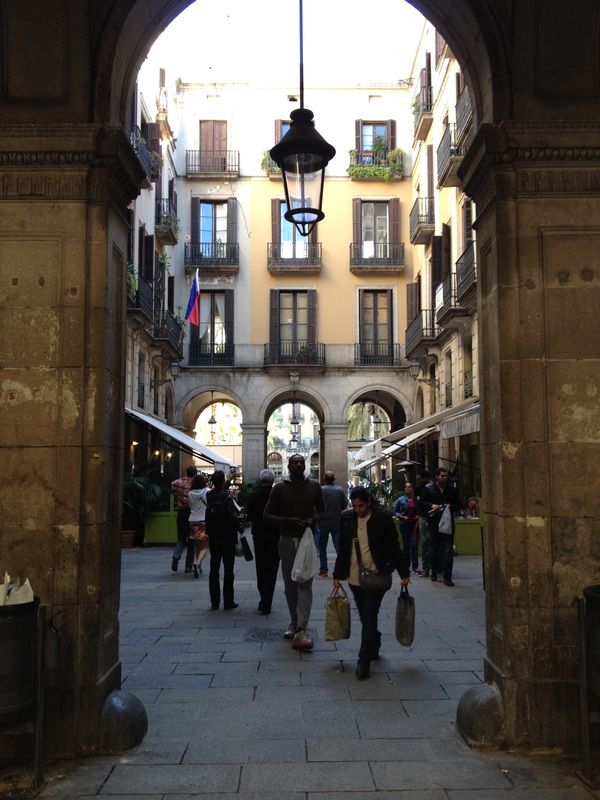
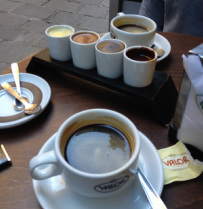
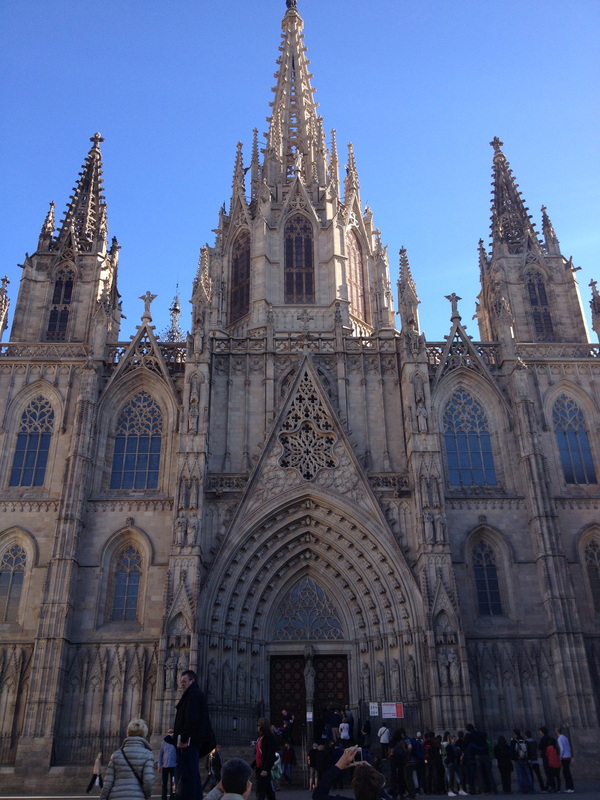
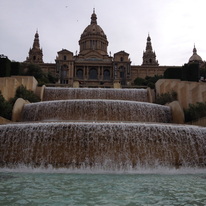
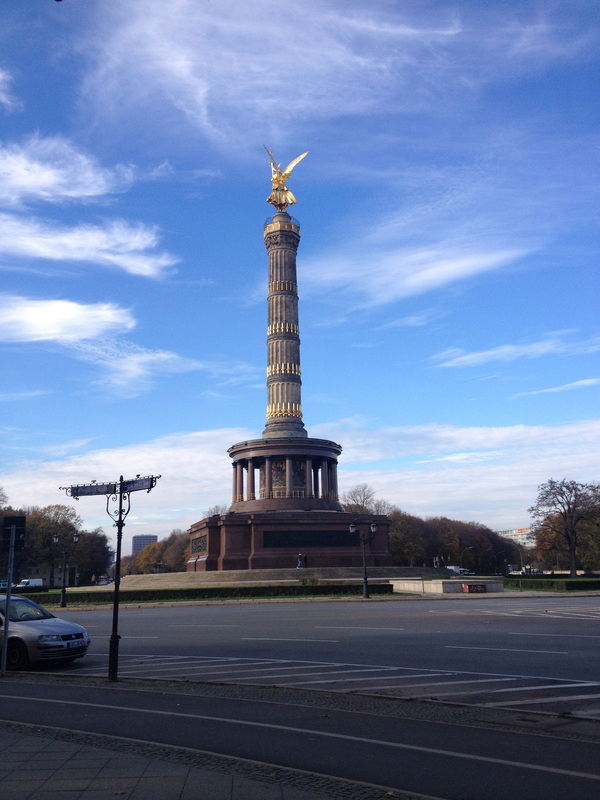
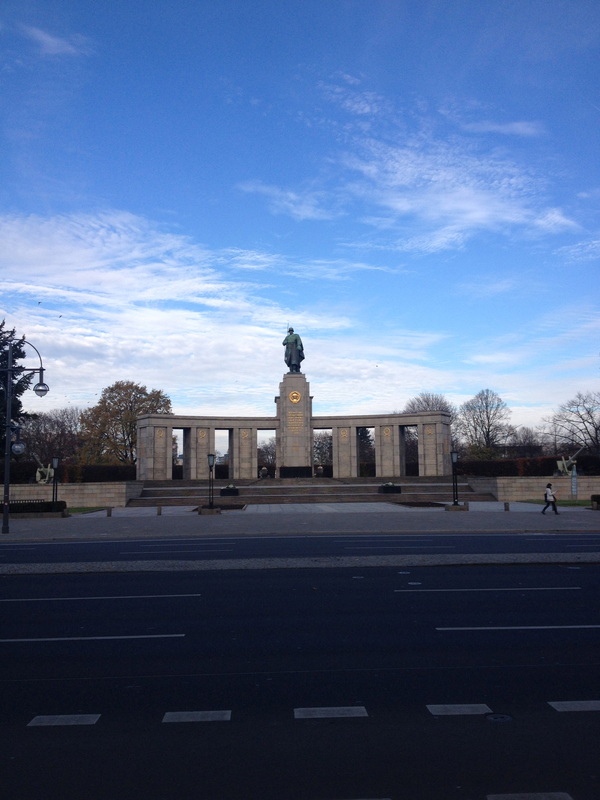
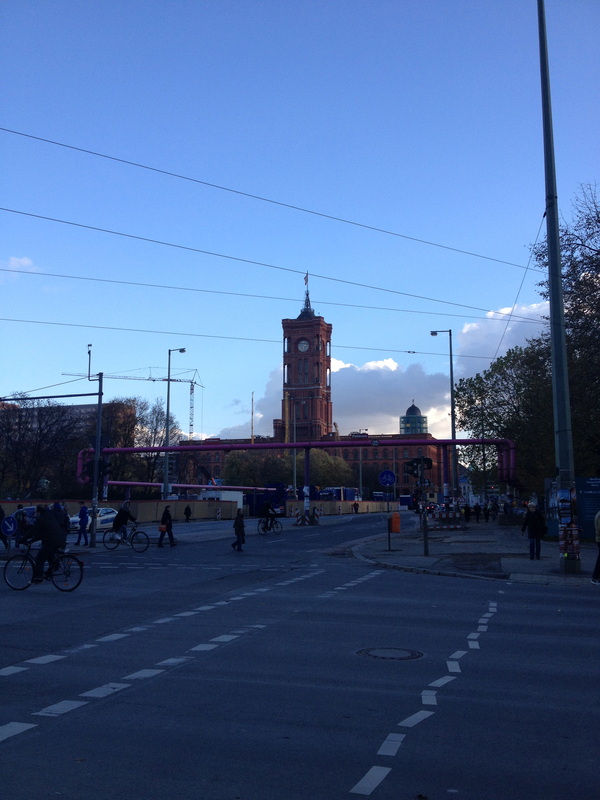
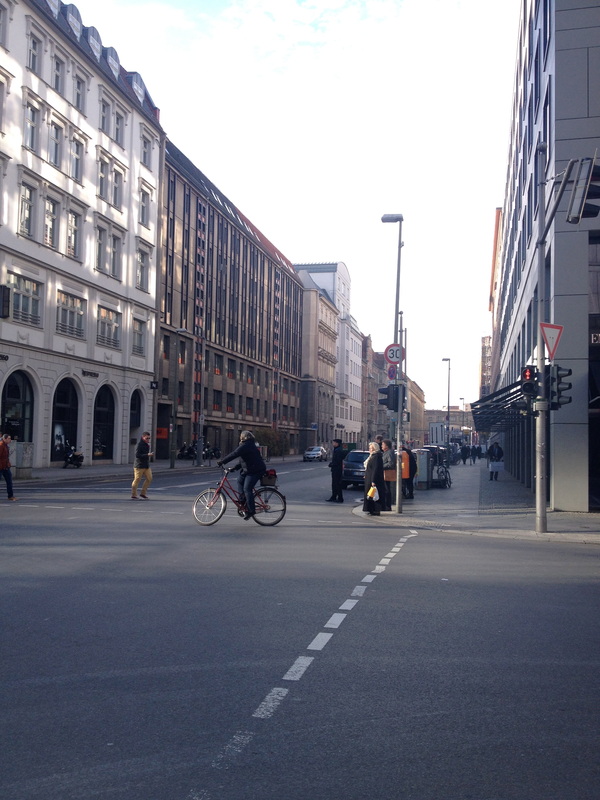
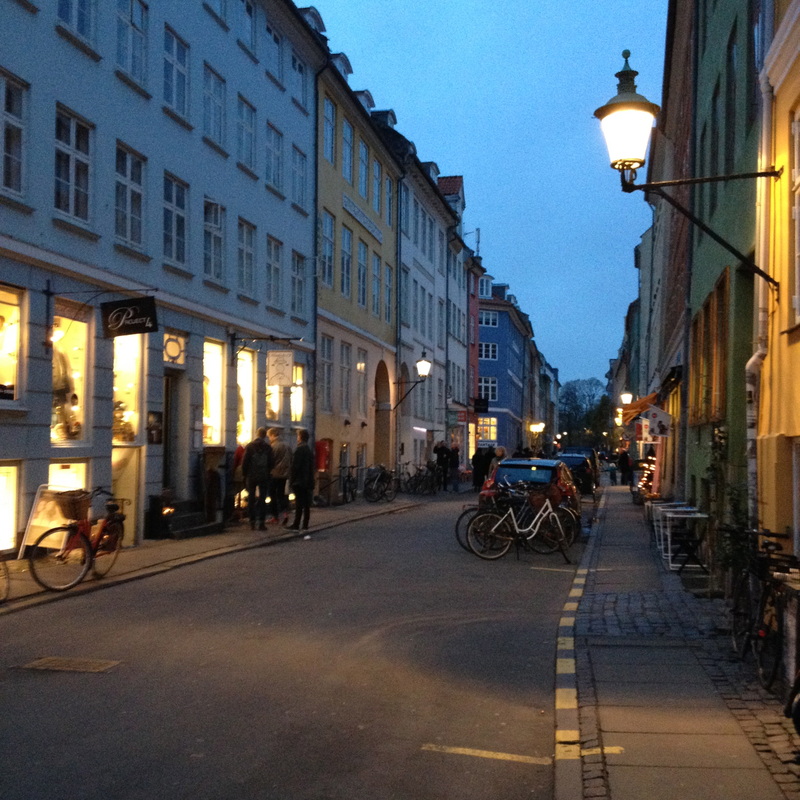
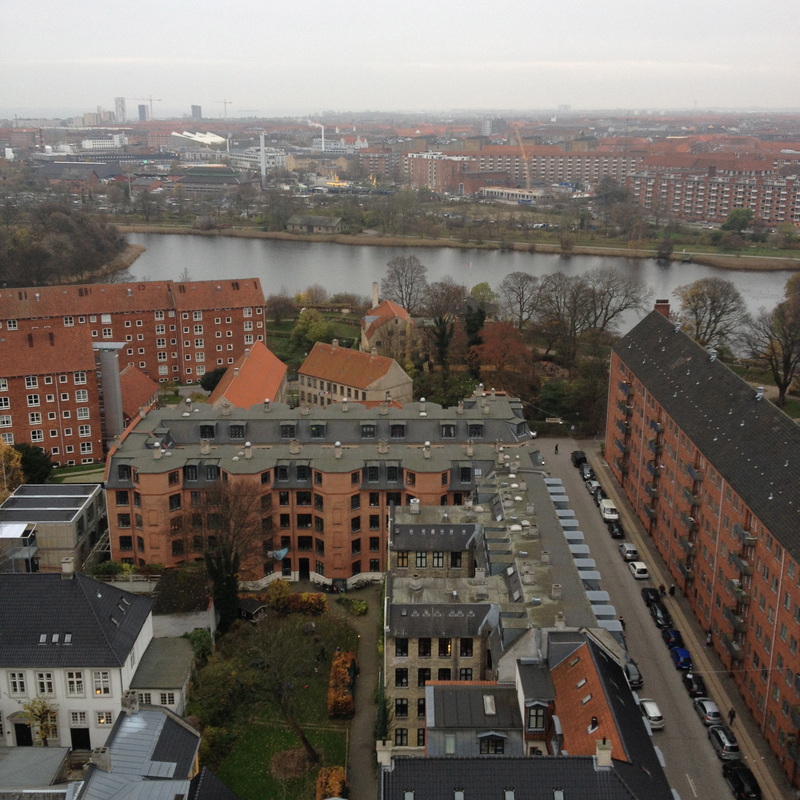
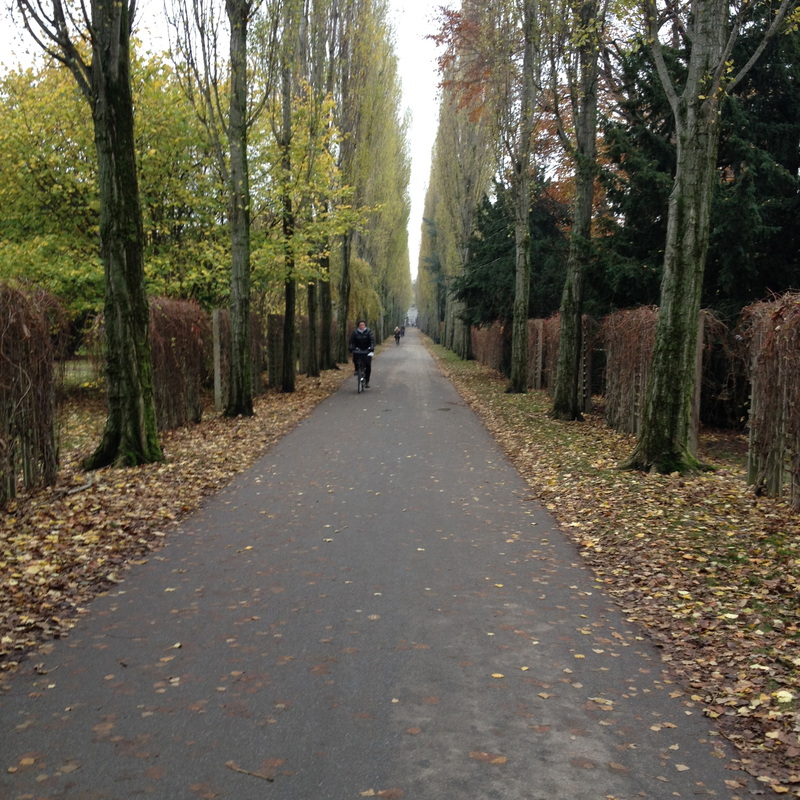
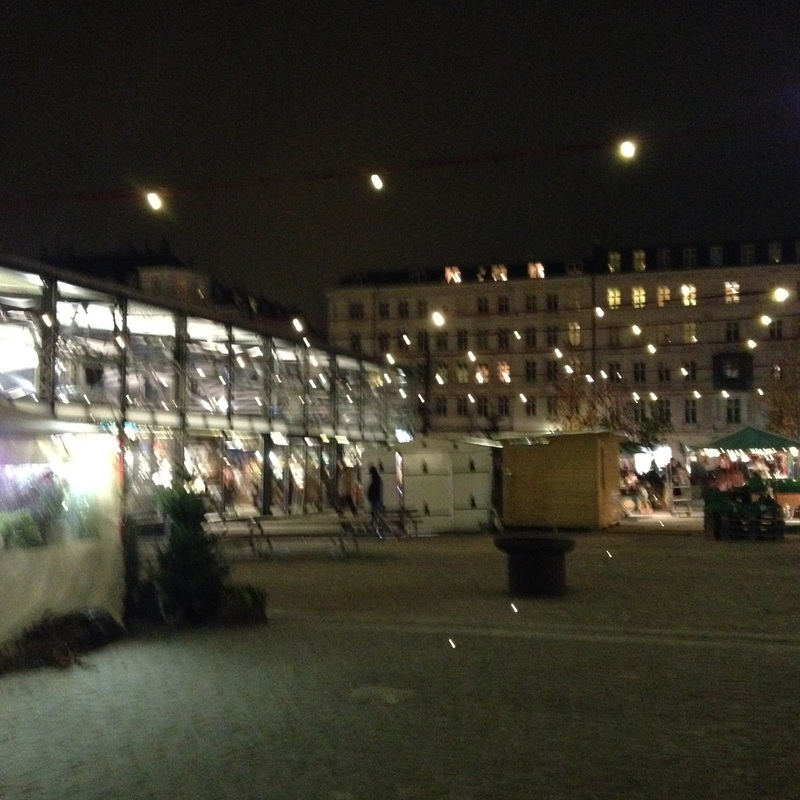
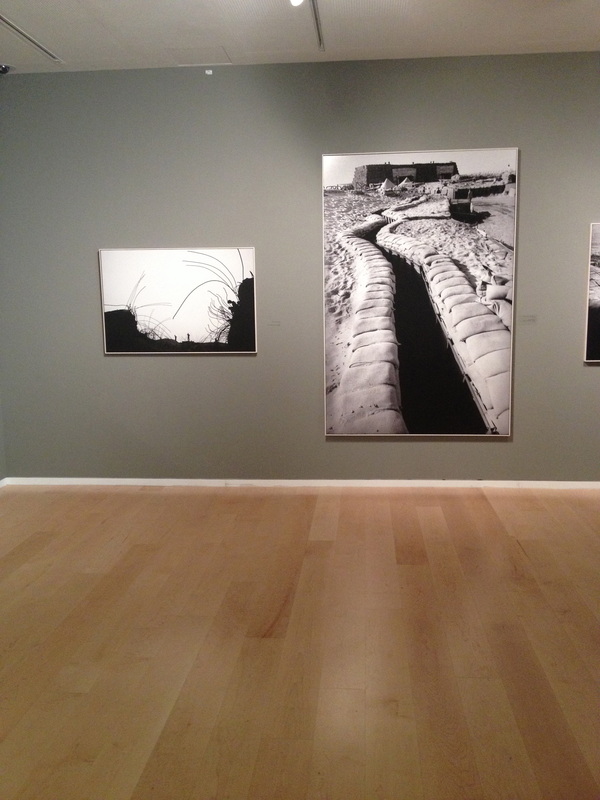
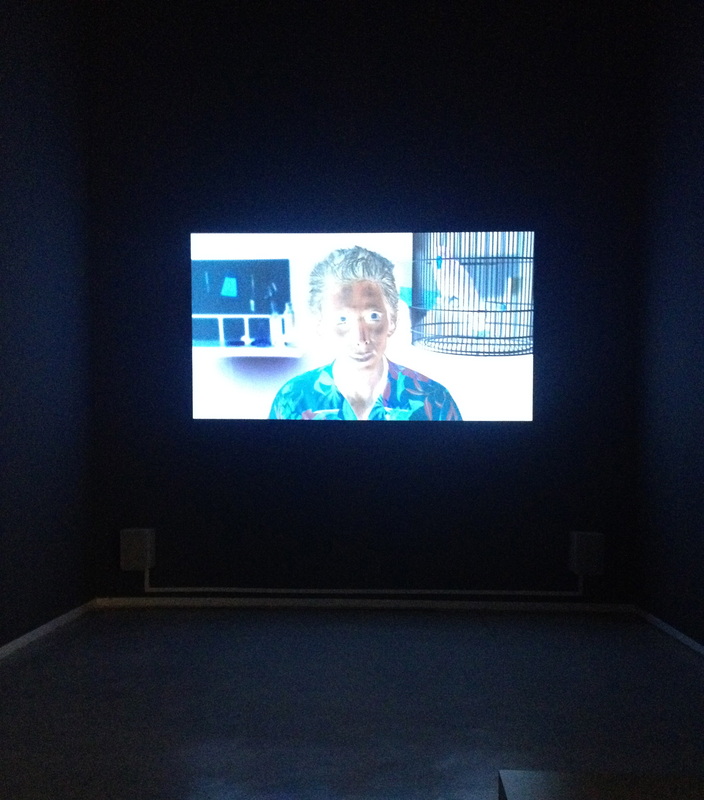
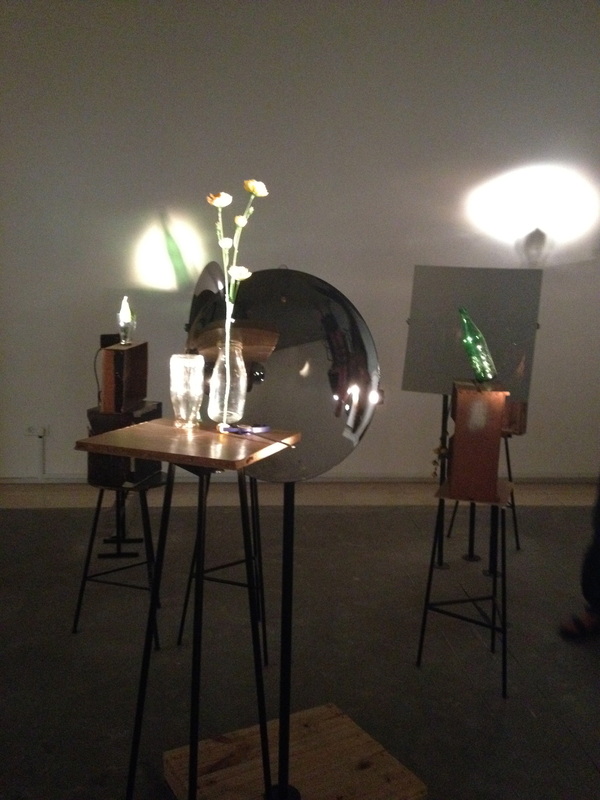
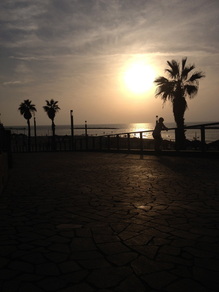
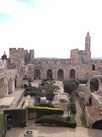
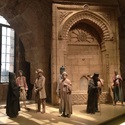
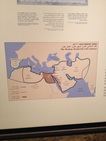
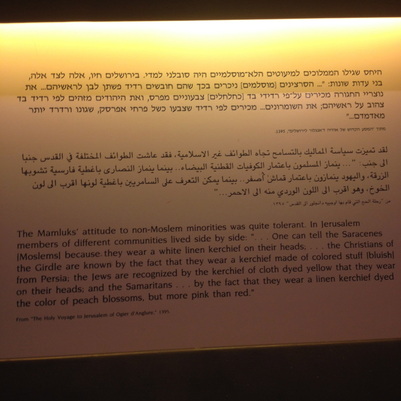
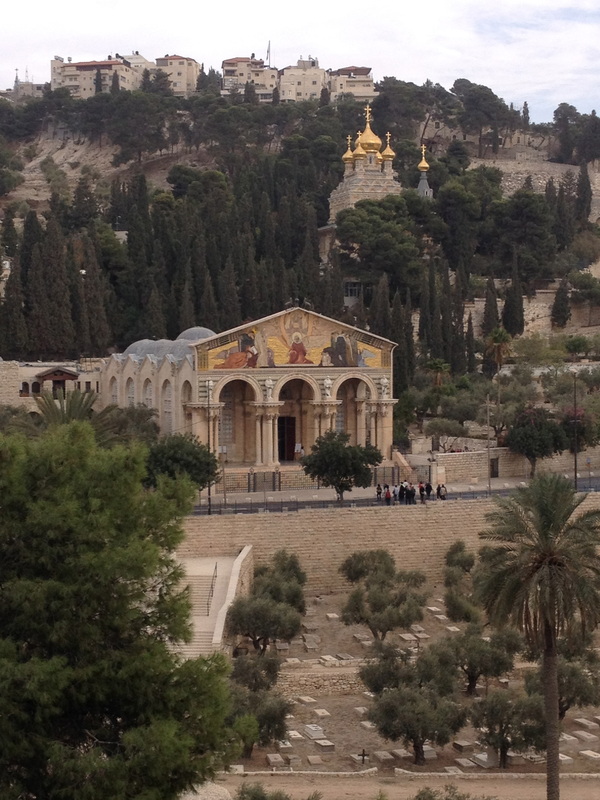
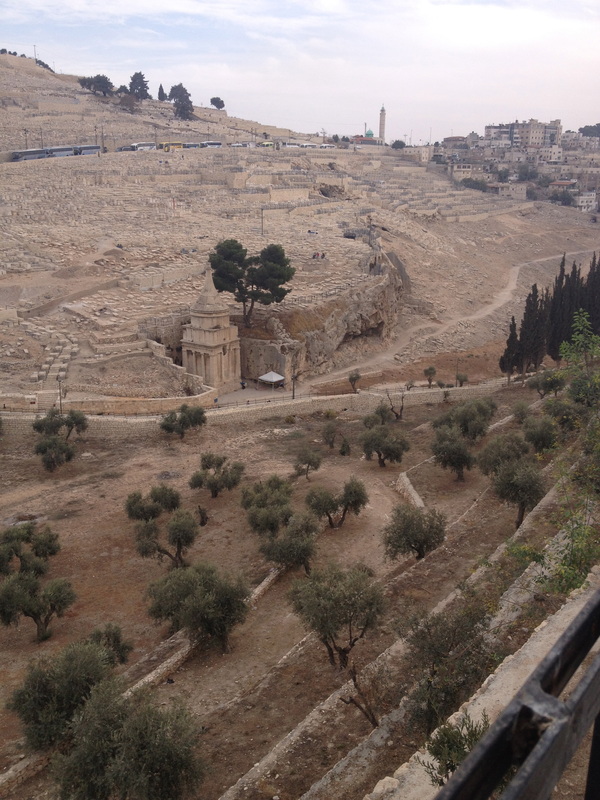
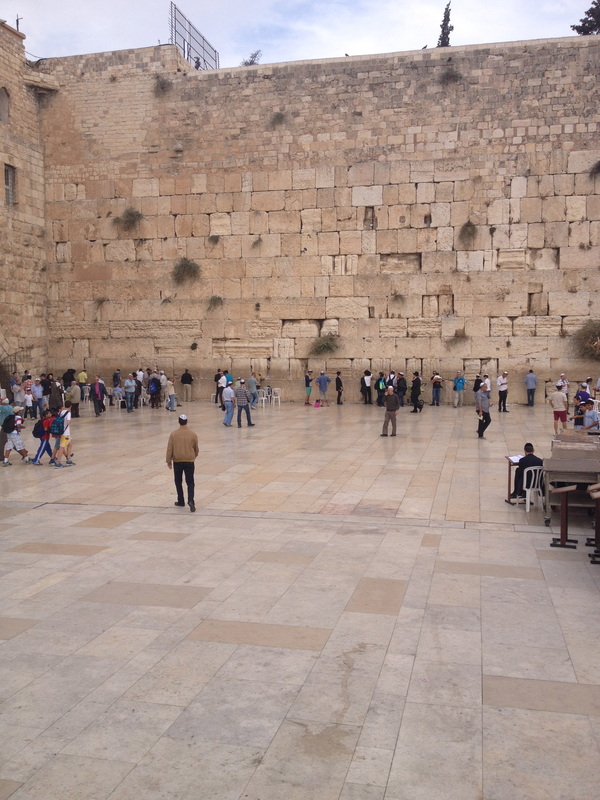
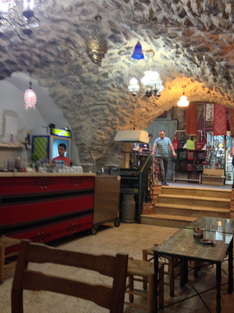
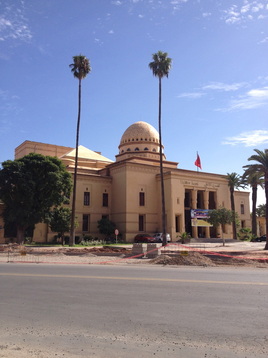
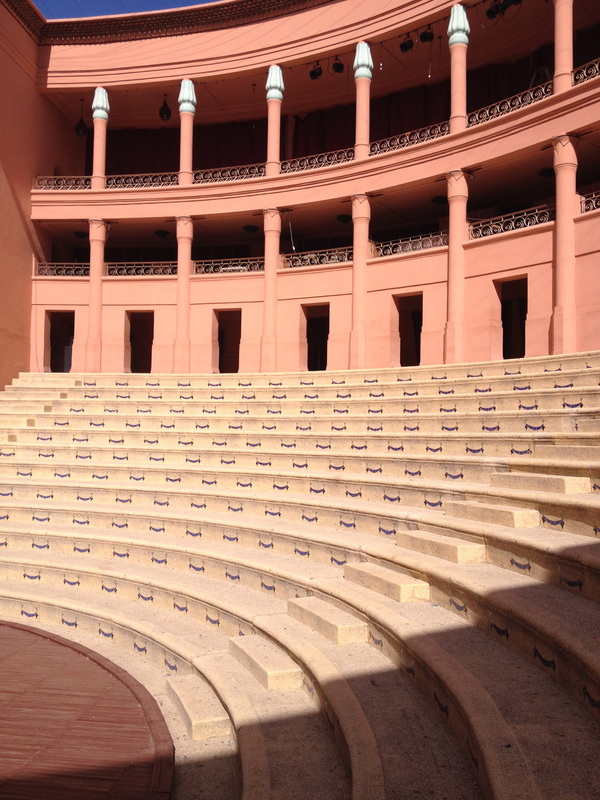
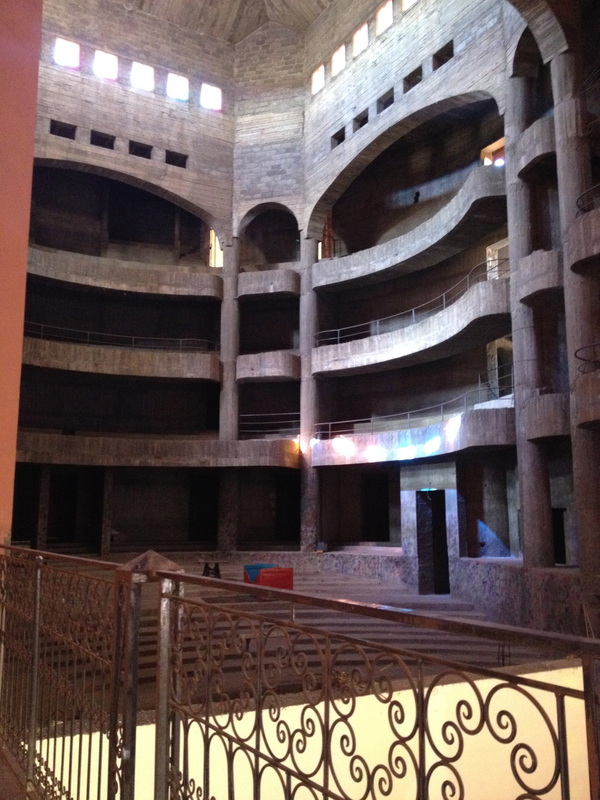
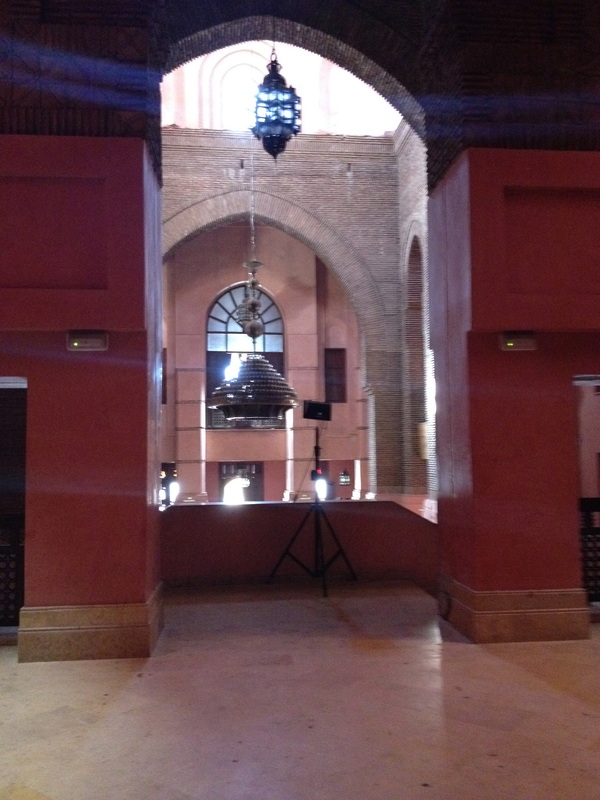
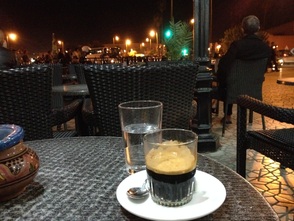
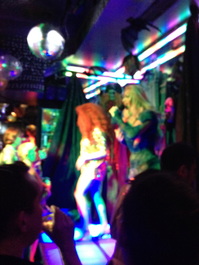
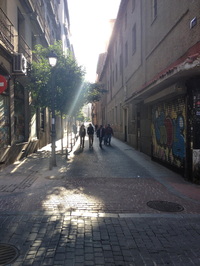
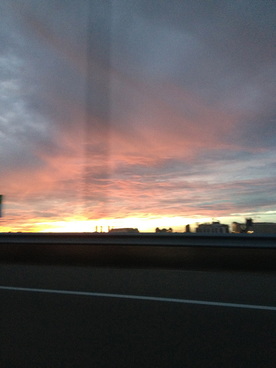
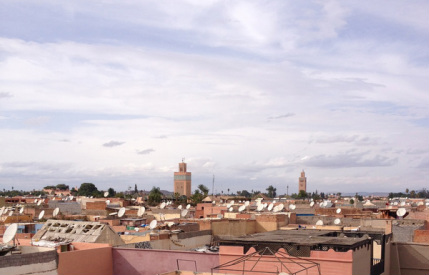
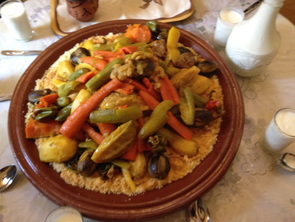
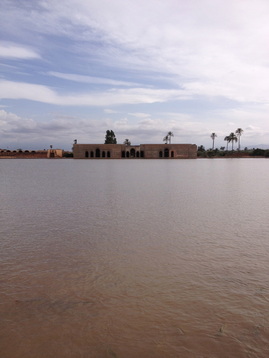
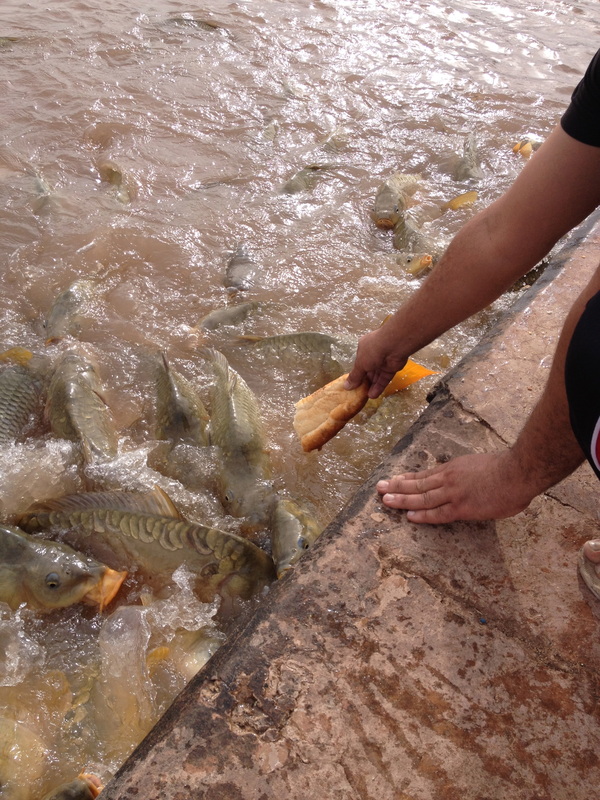
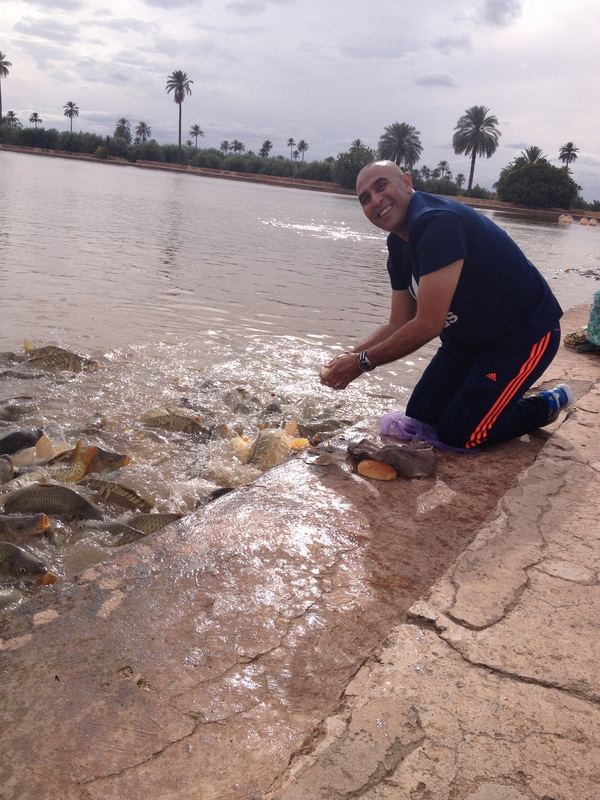
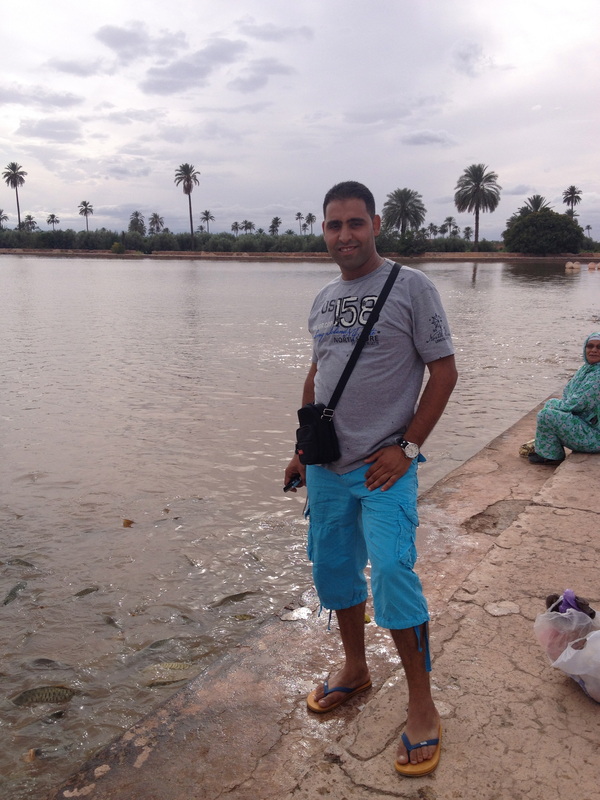
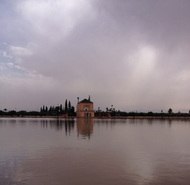
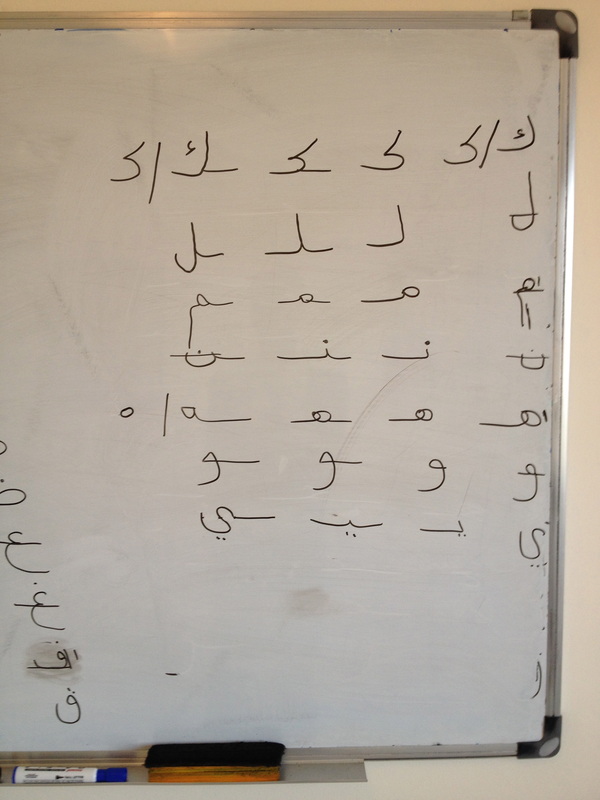
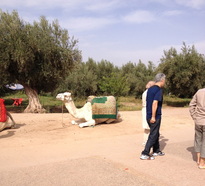
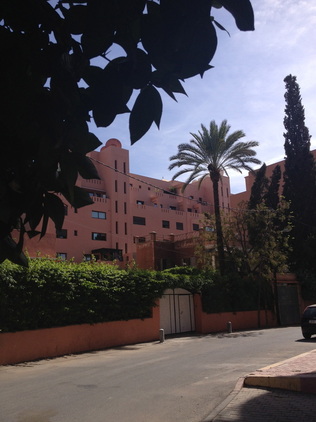
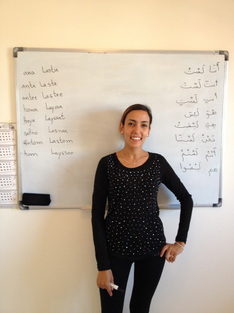
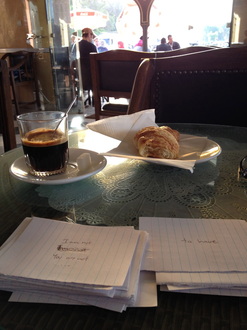
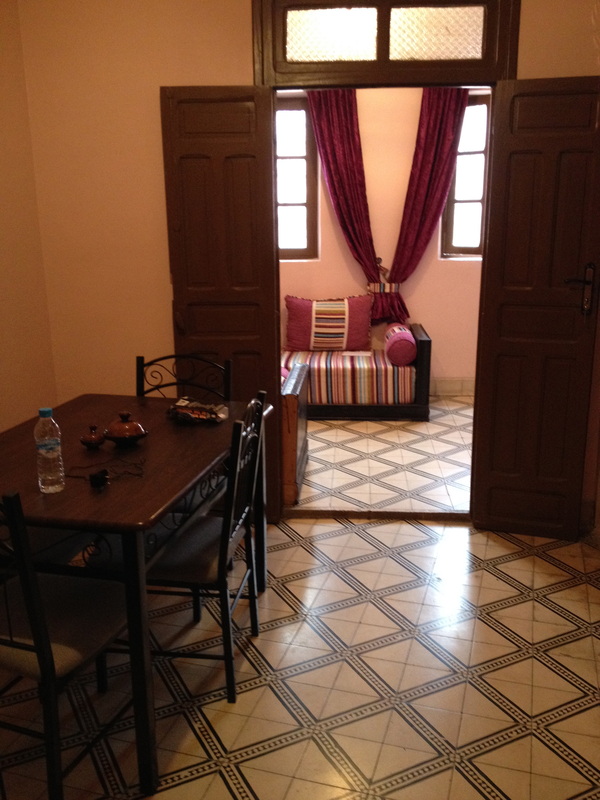
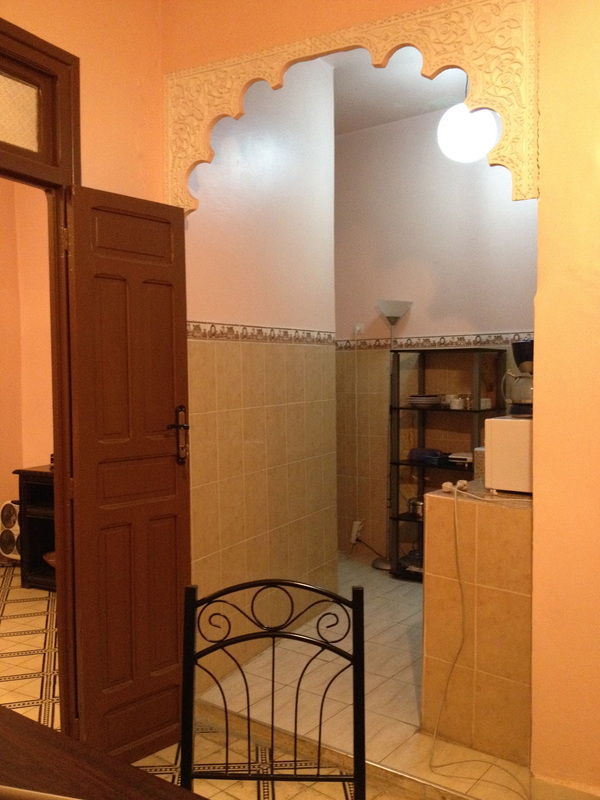
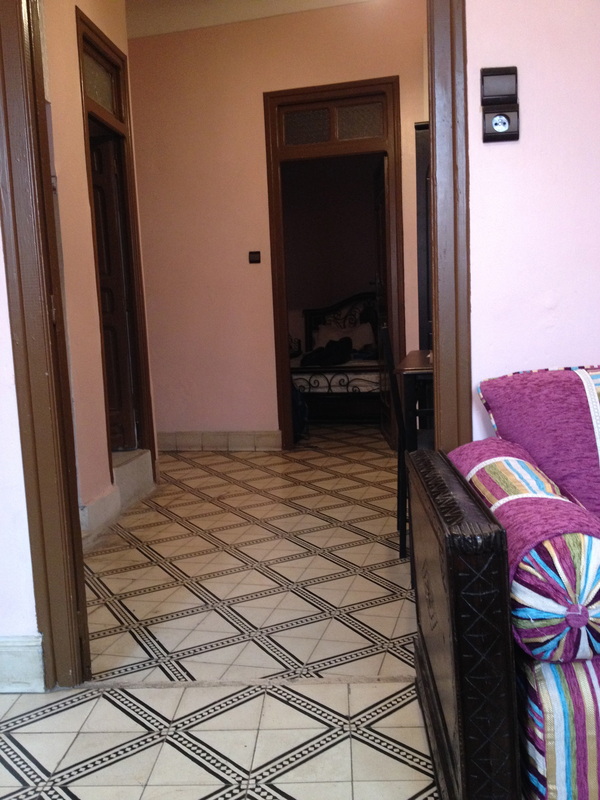
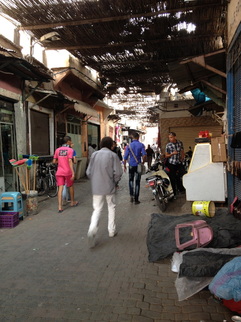
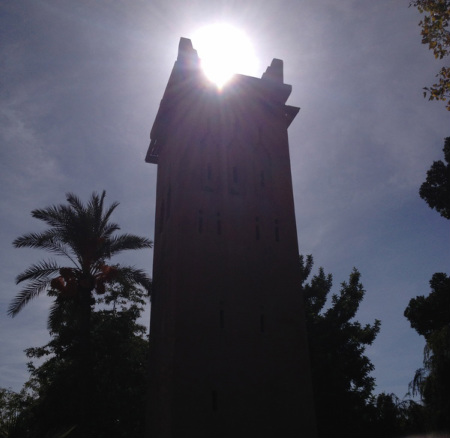
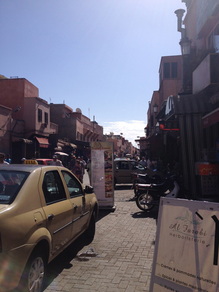
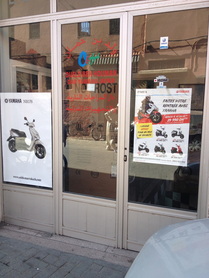
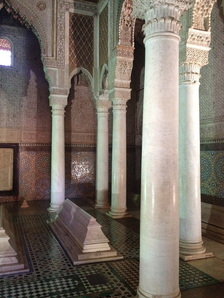
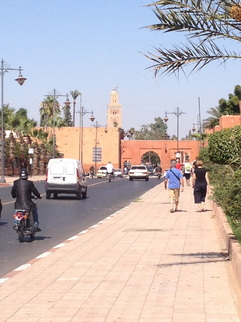
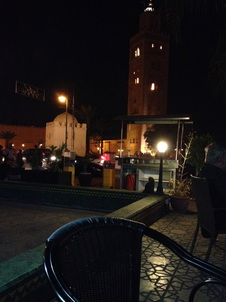
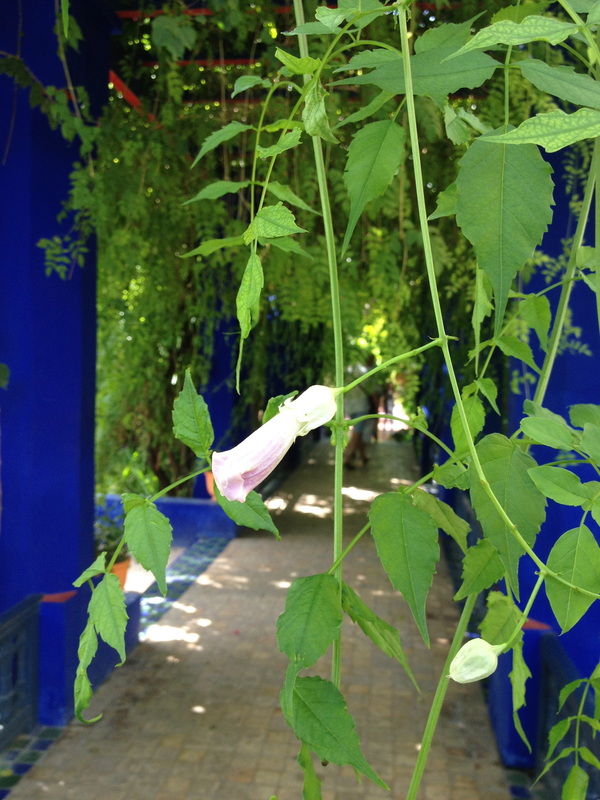
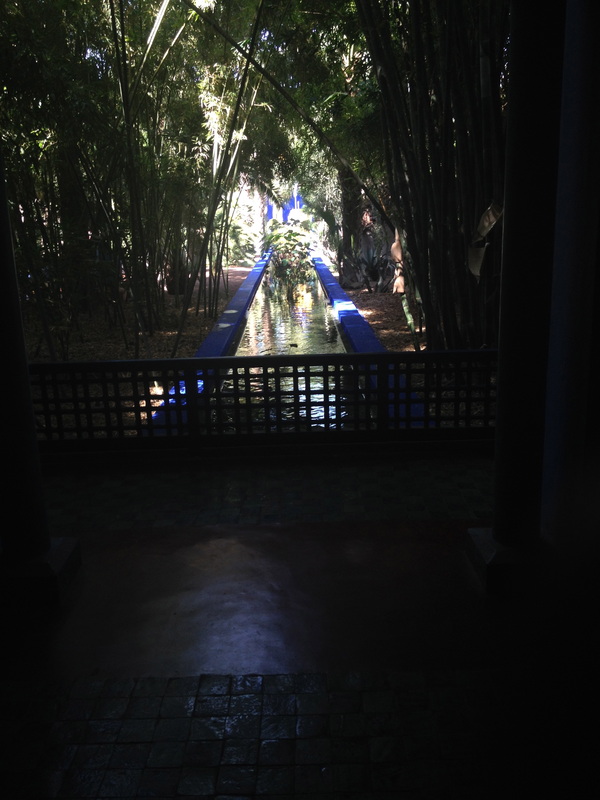
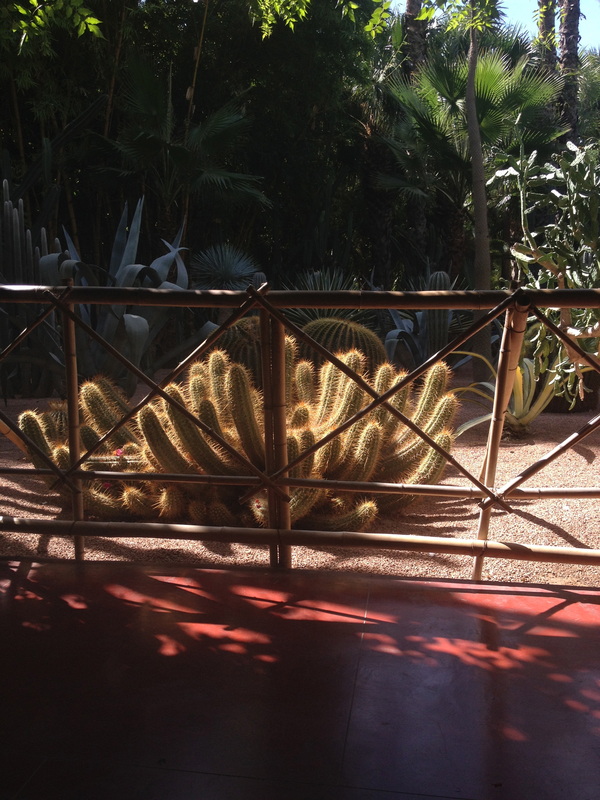
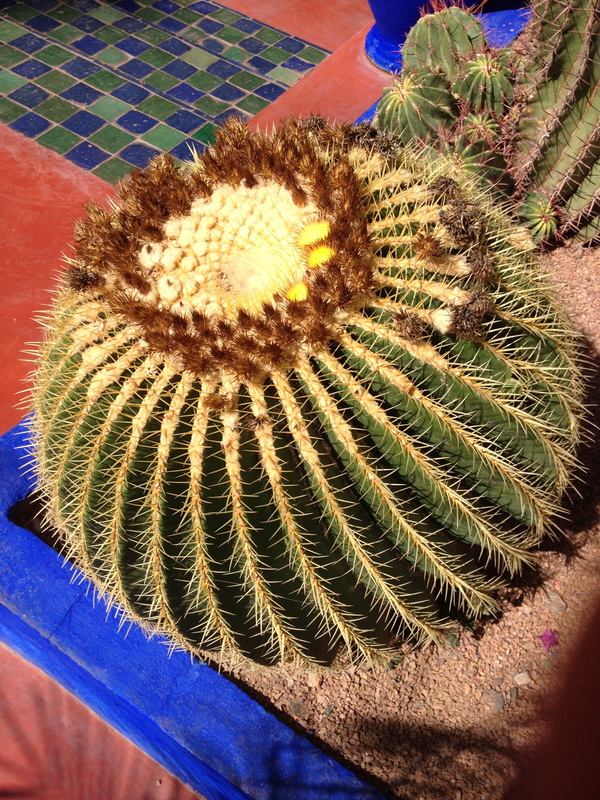
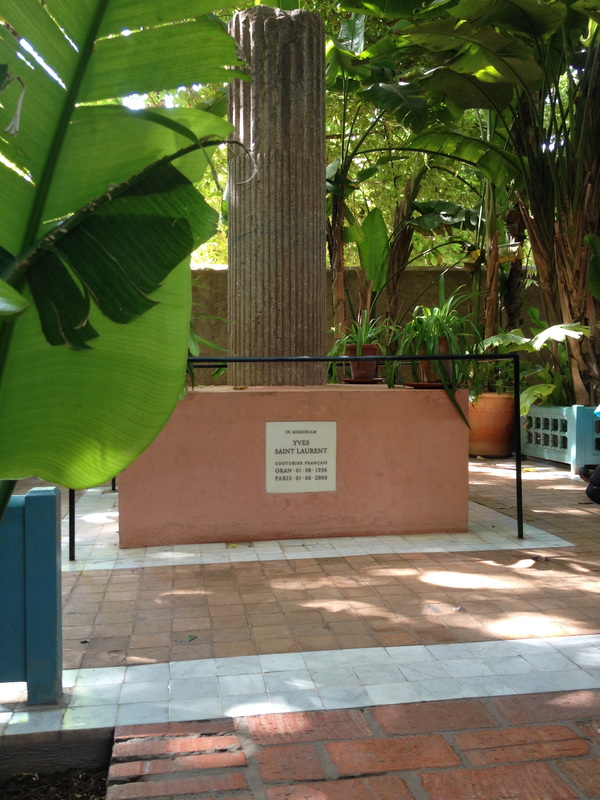
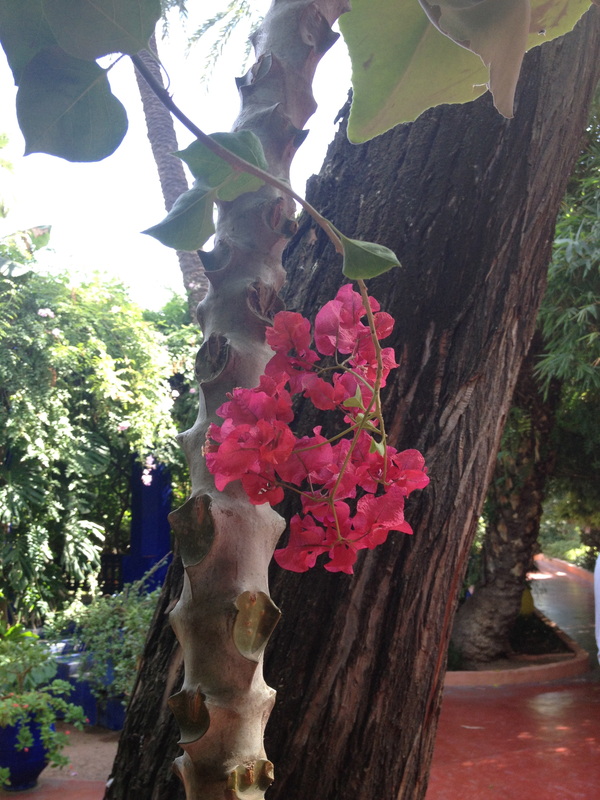
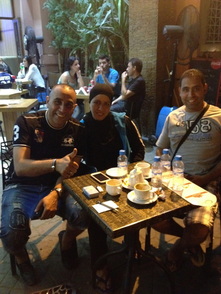
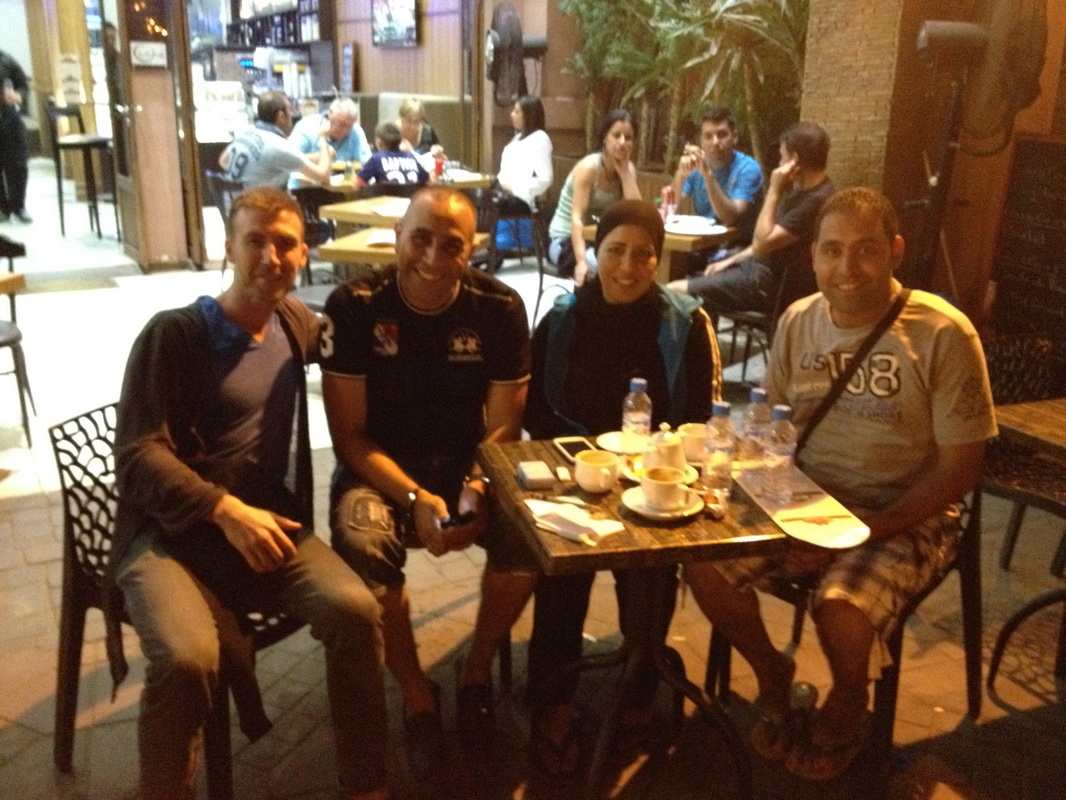
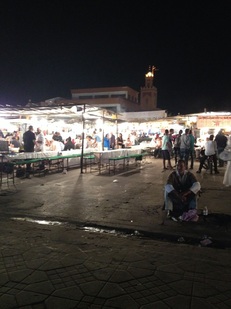
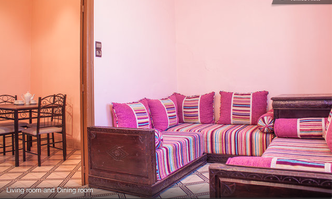
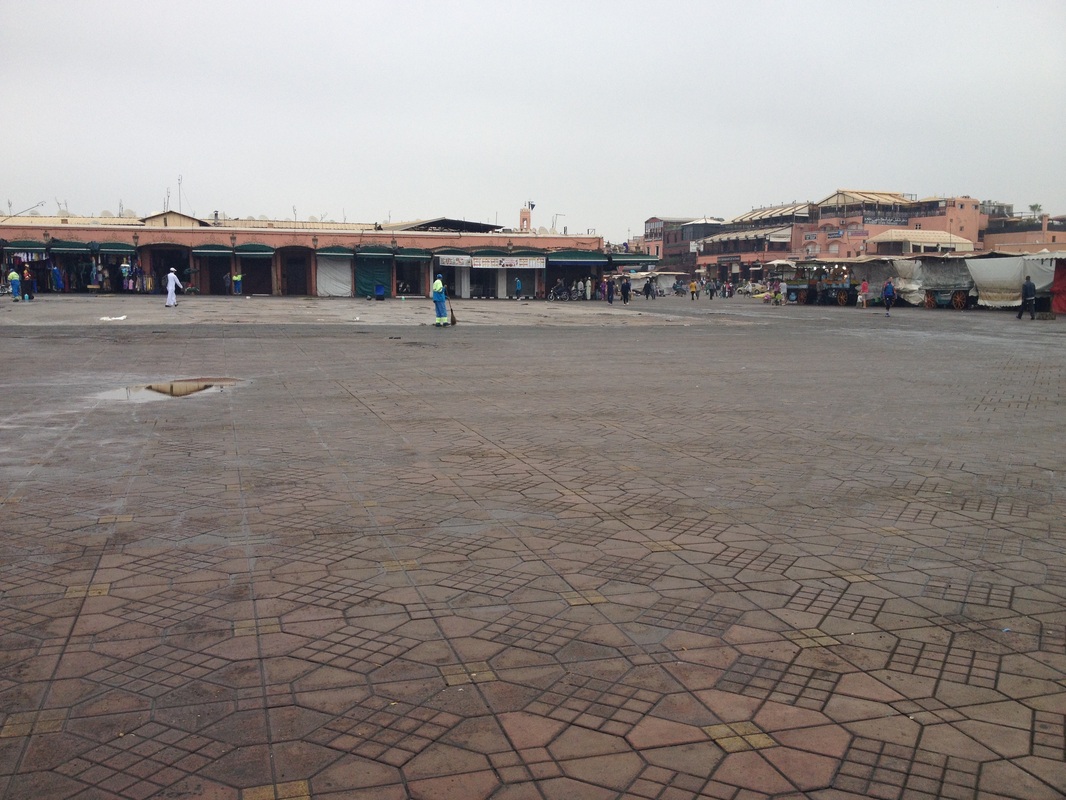
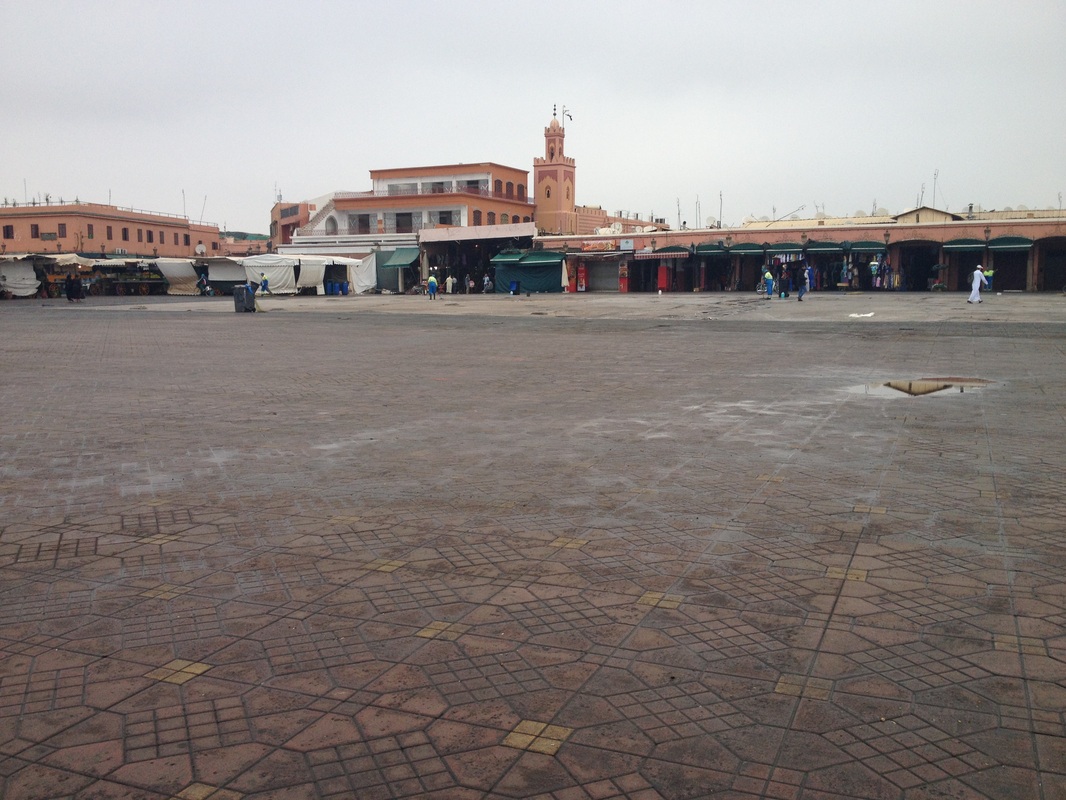
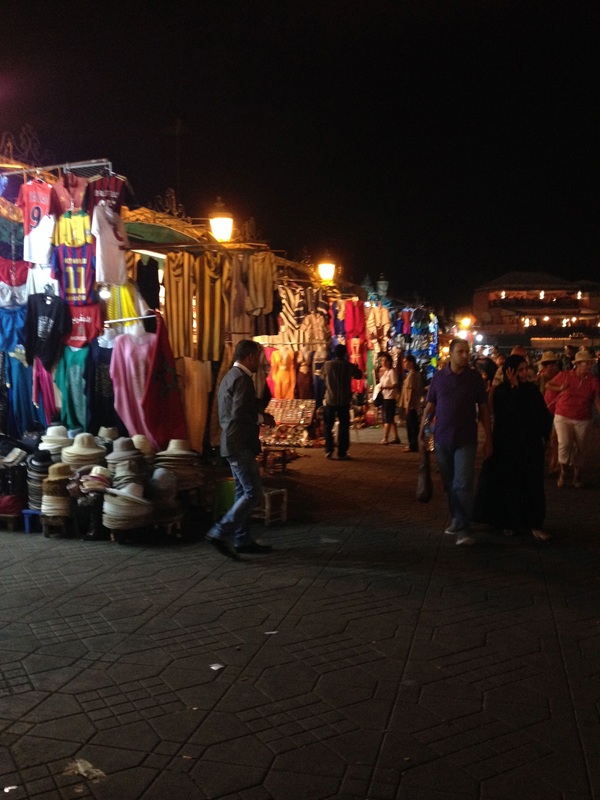
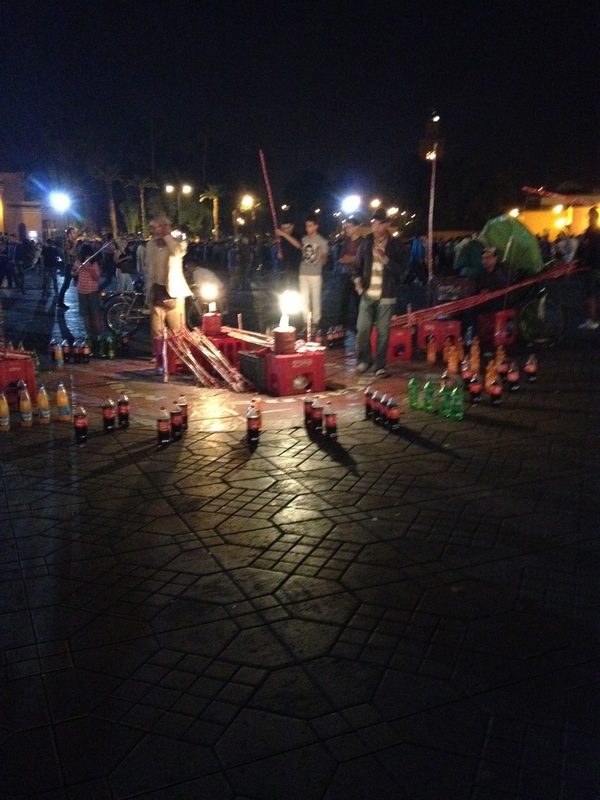
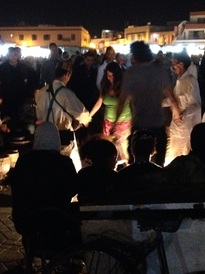
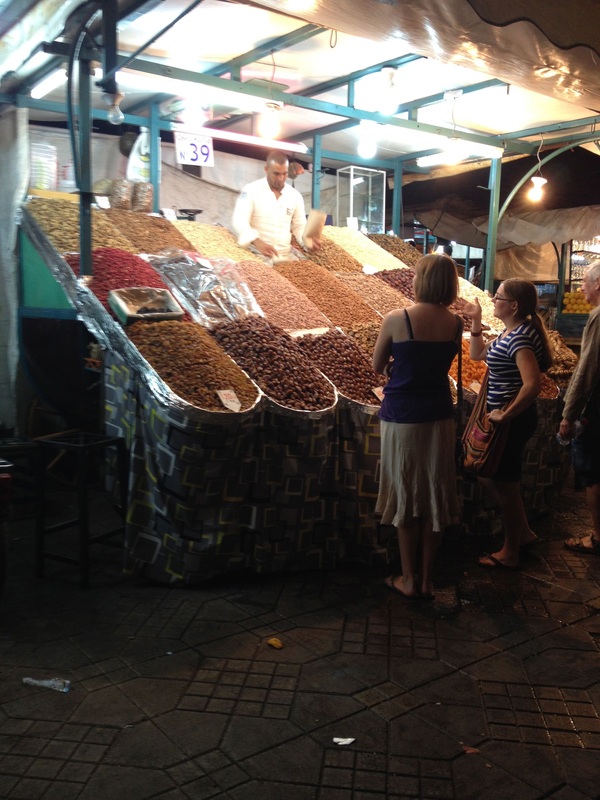
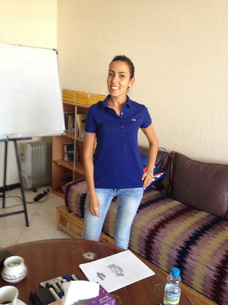
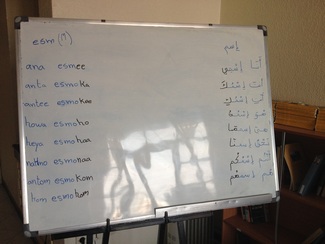
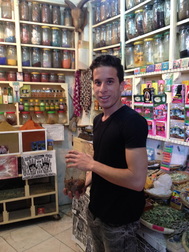
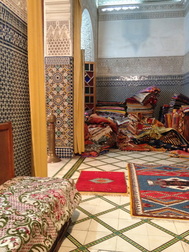
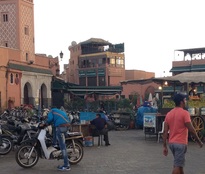
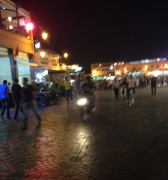
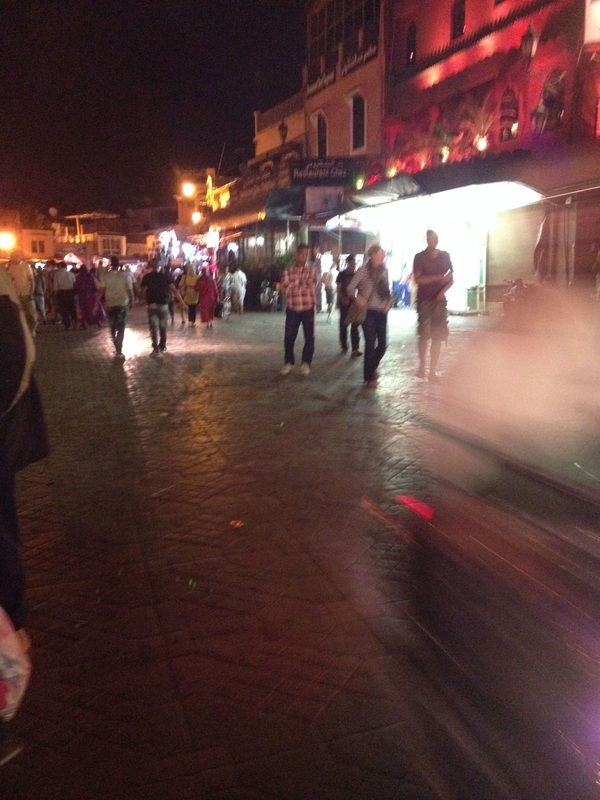
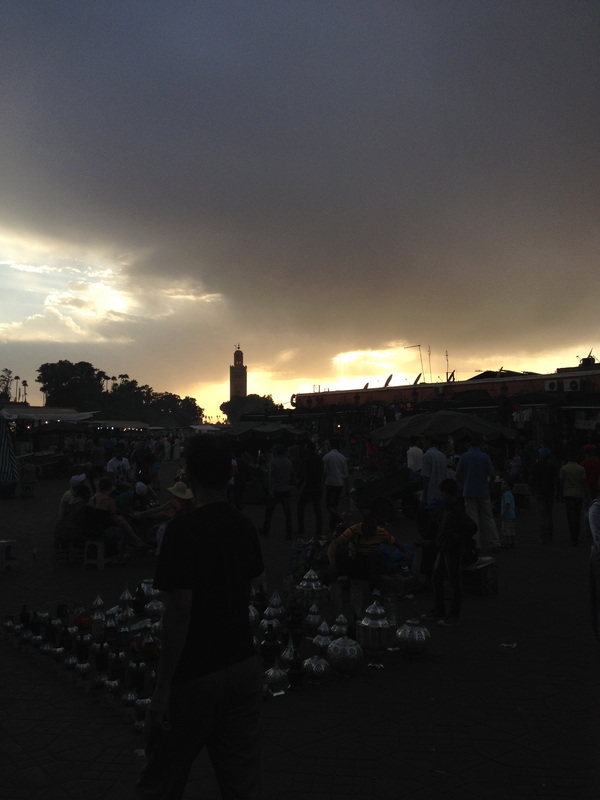
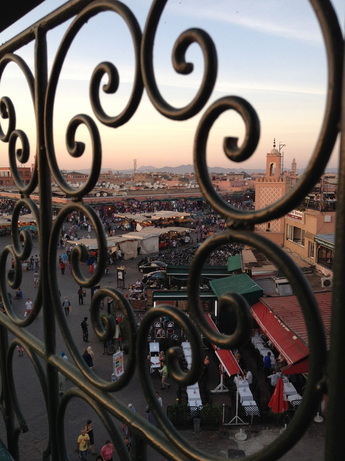
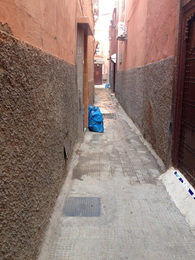
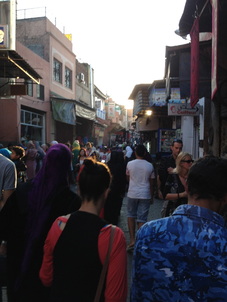
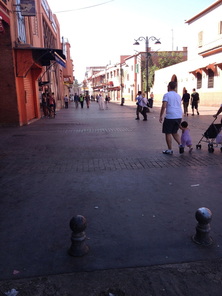
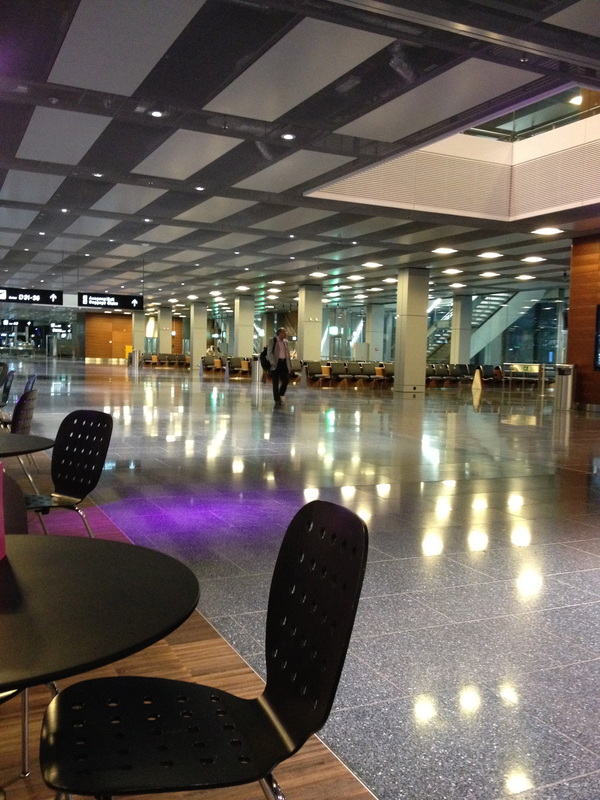
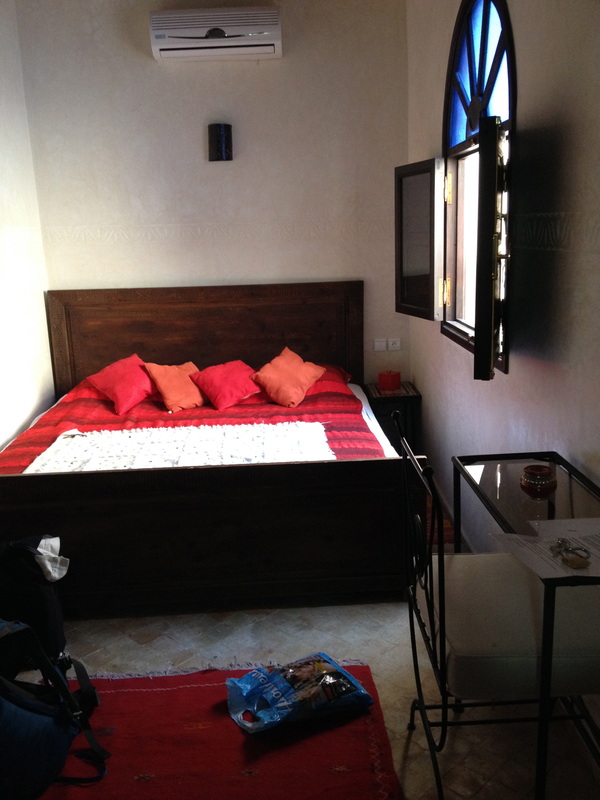
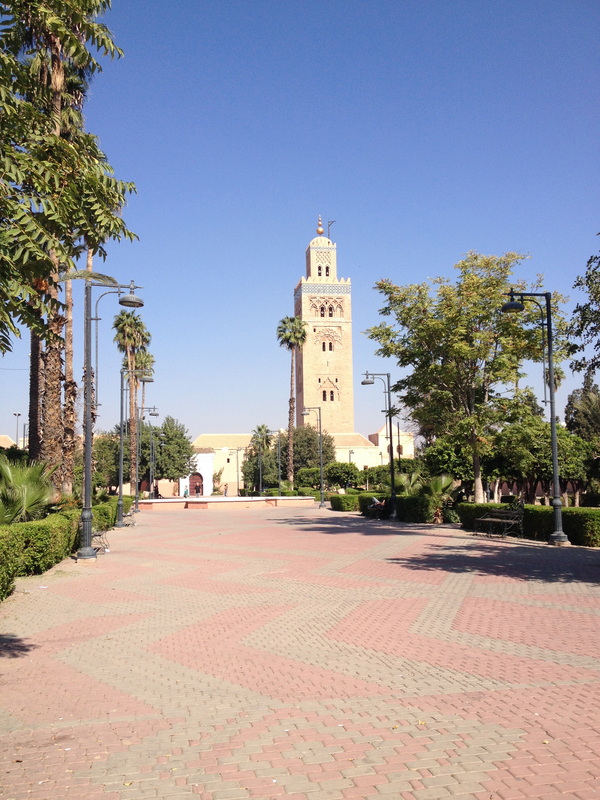
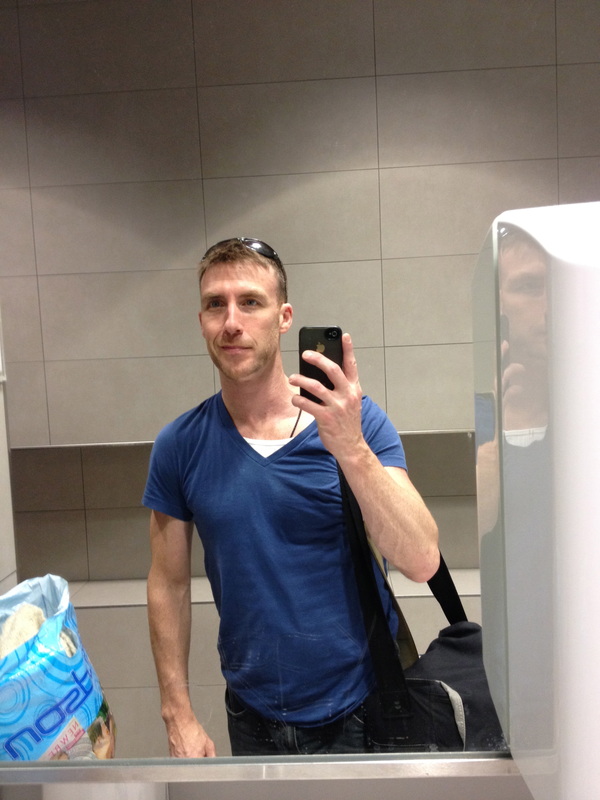
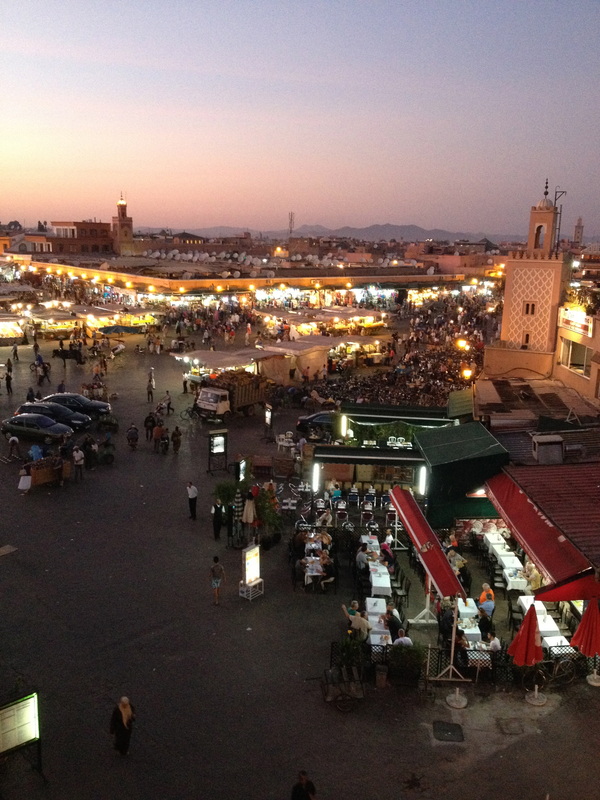
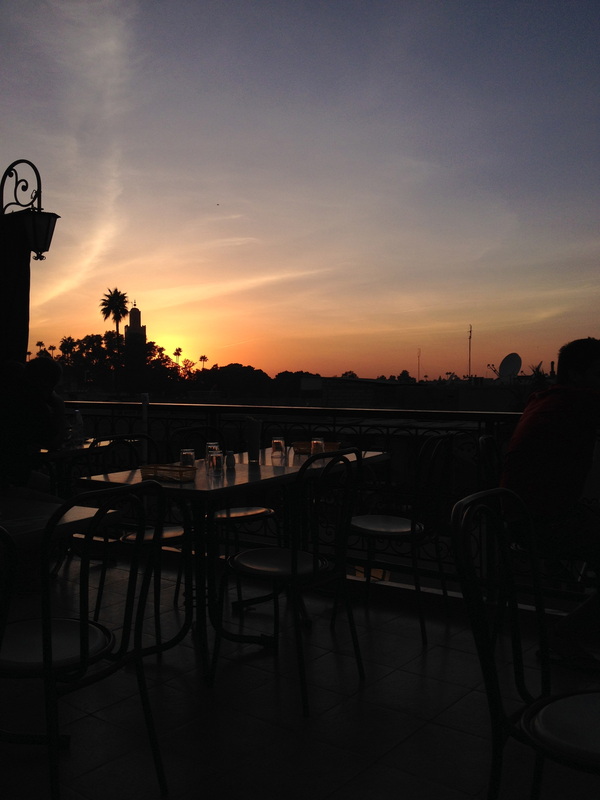
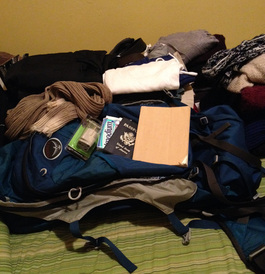
 RSS Feed
RSS Feed
